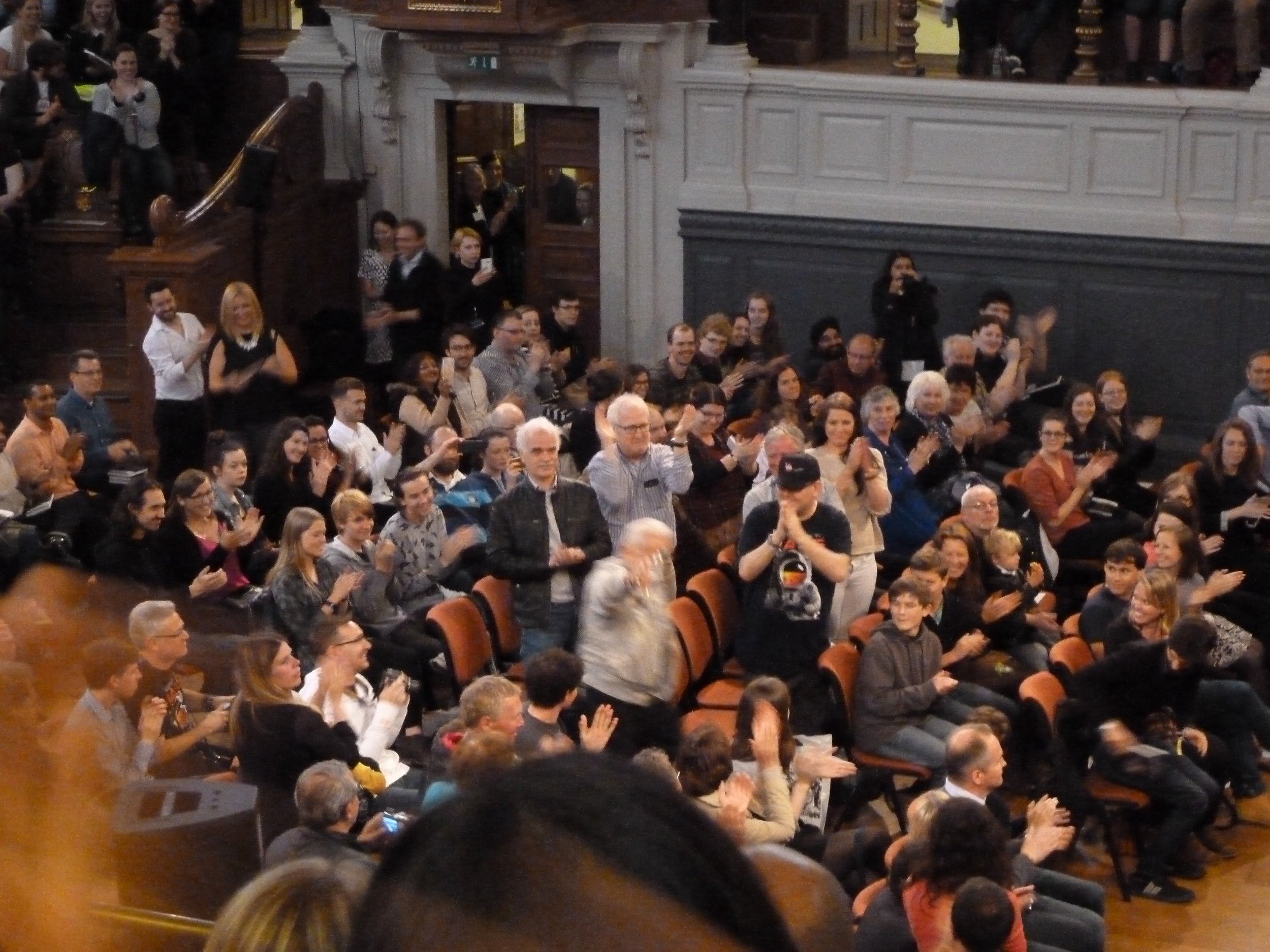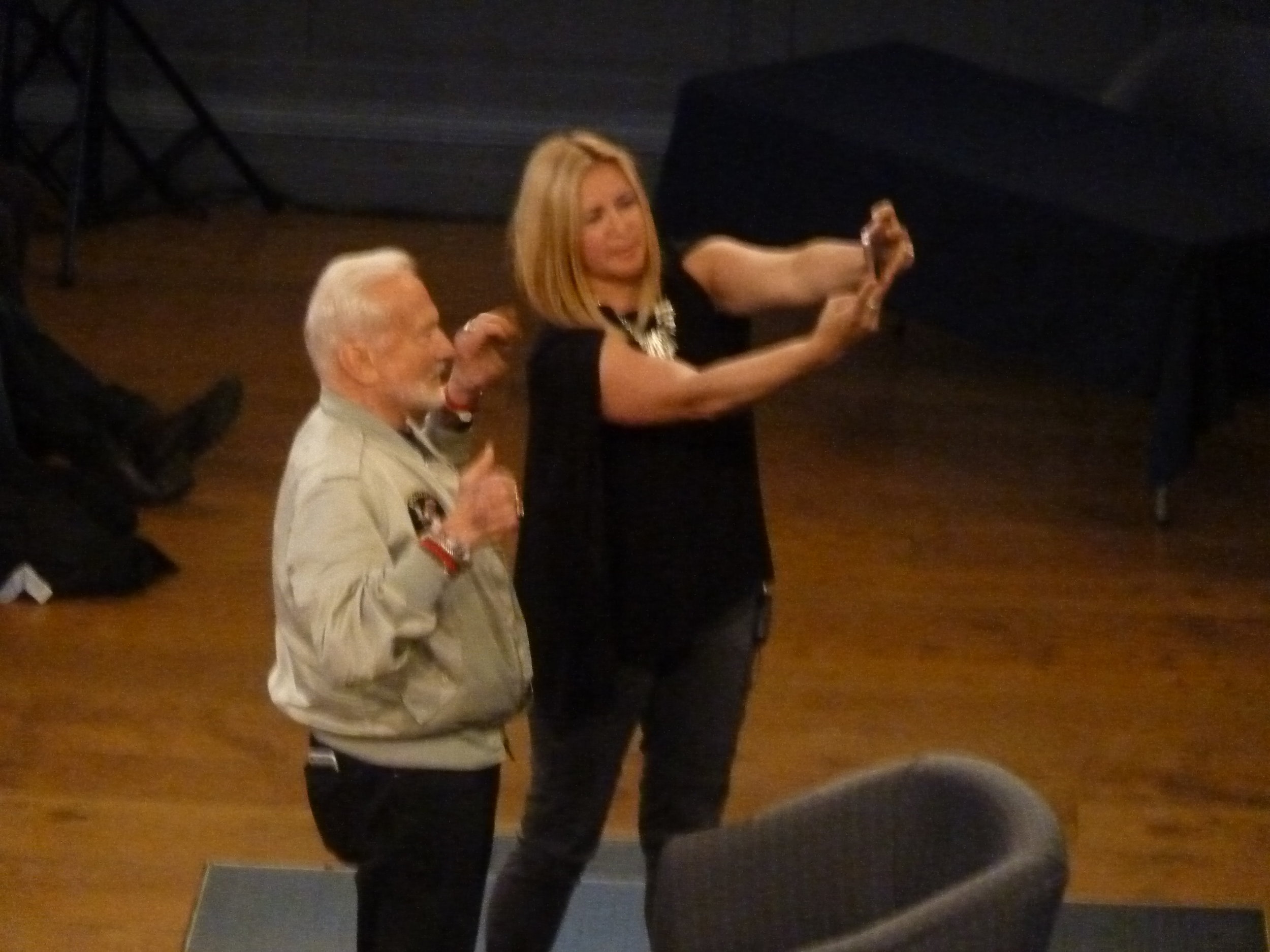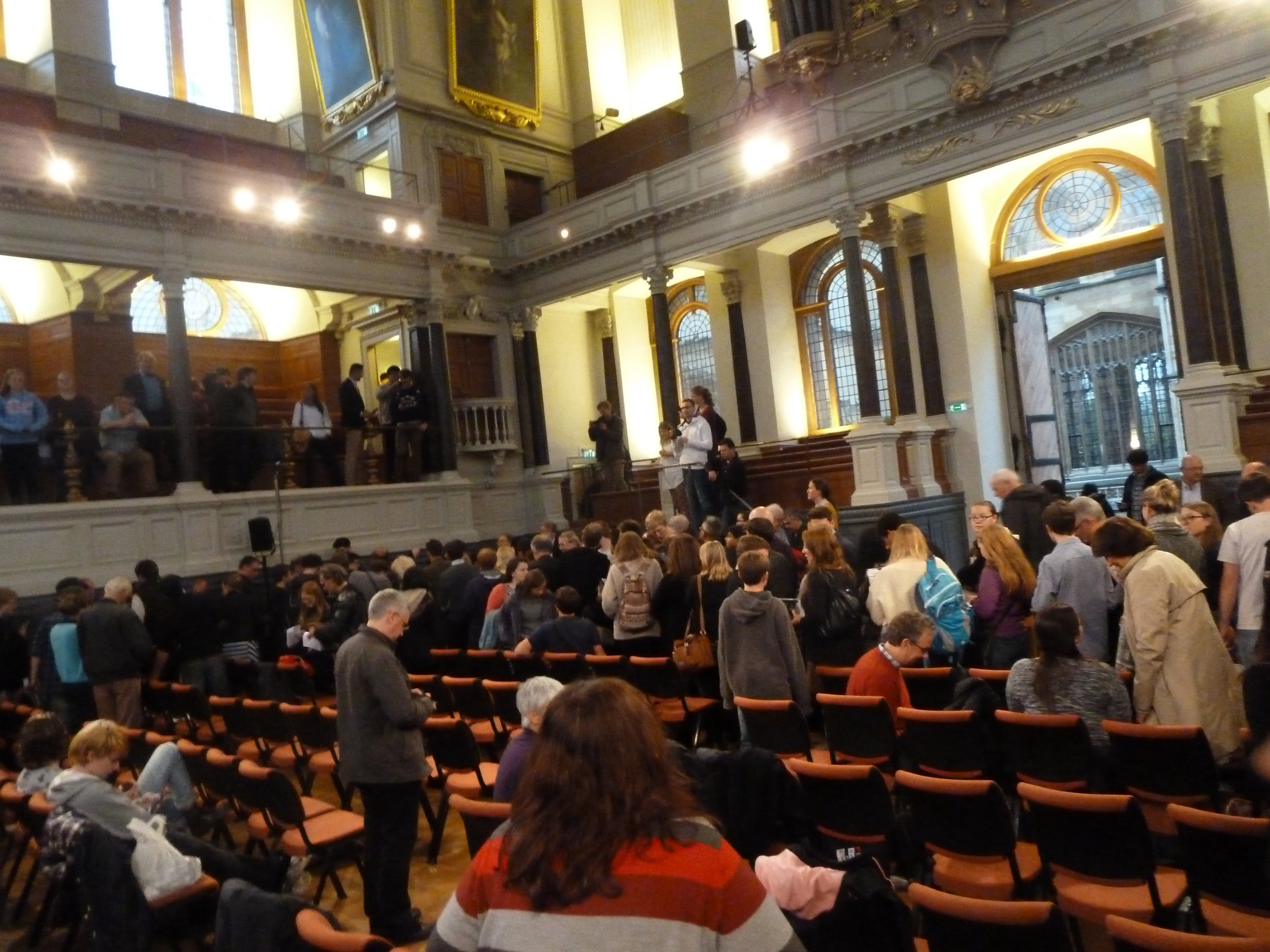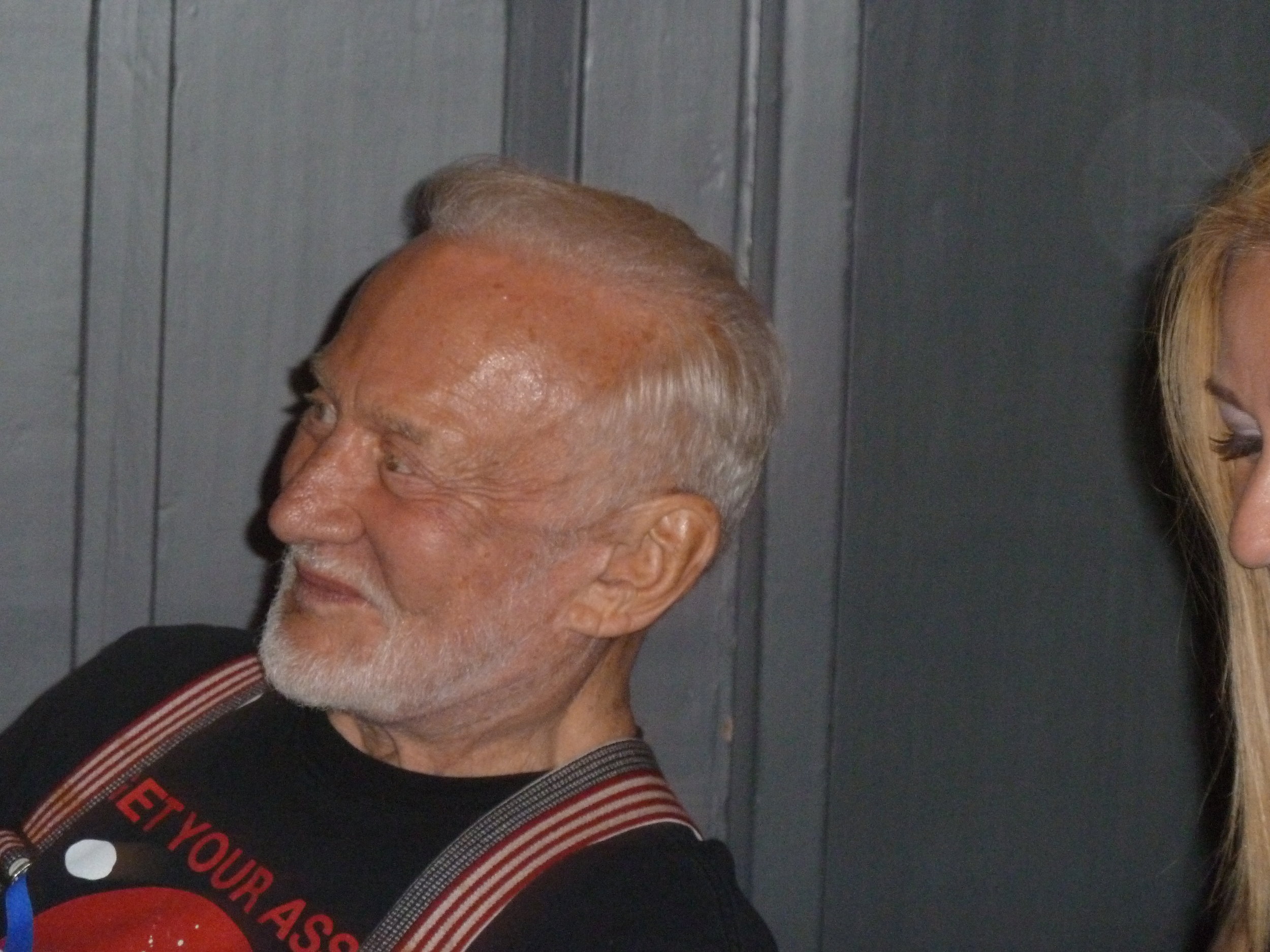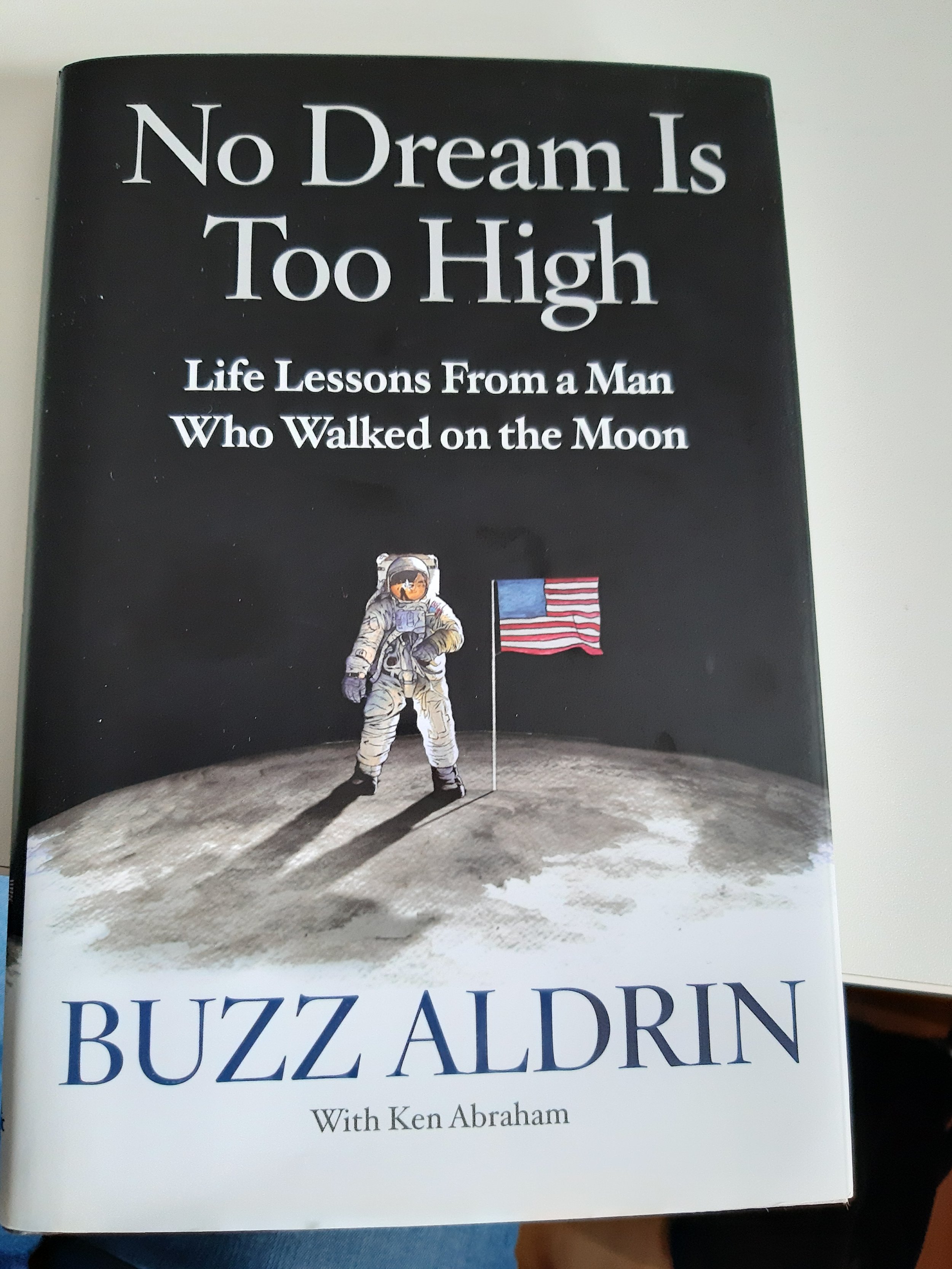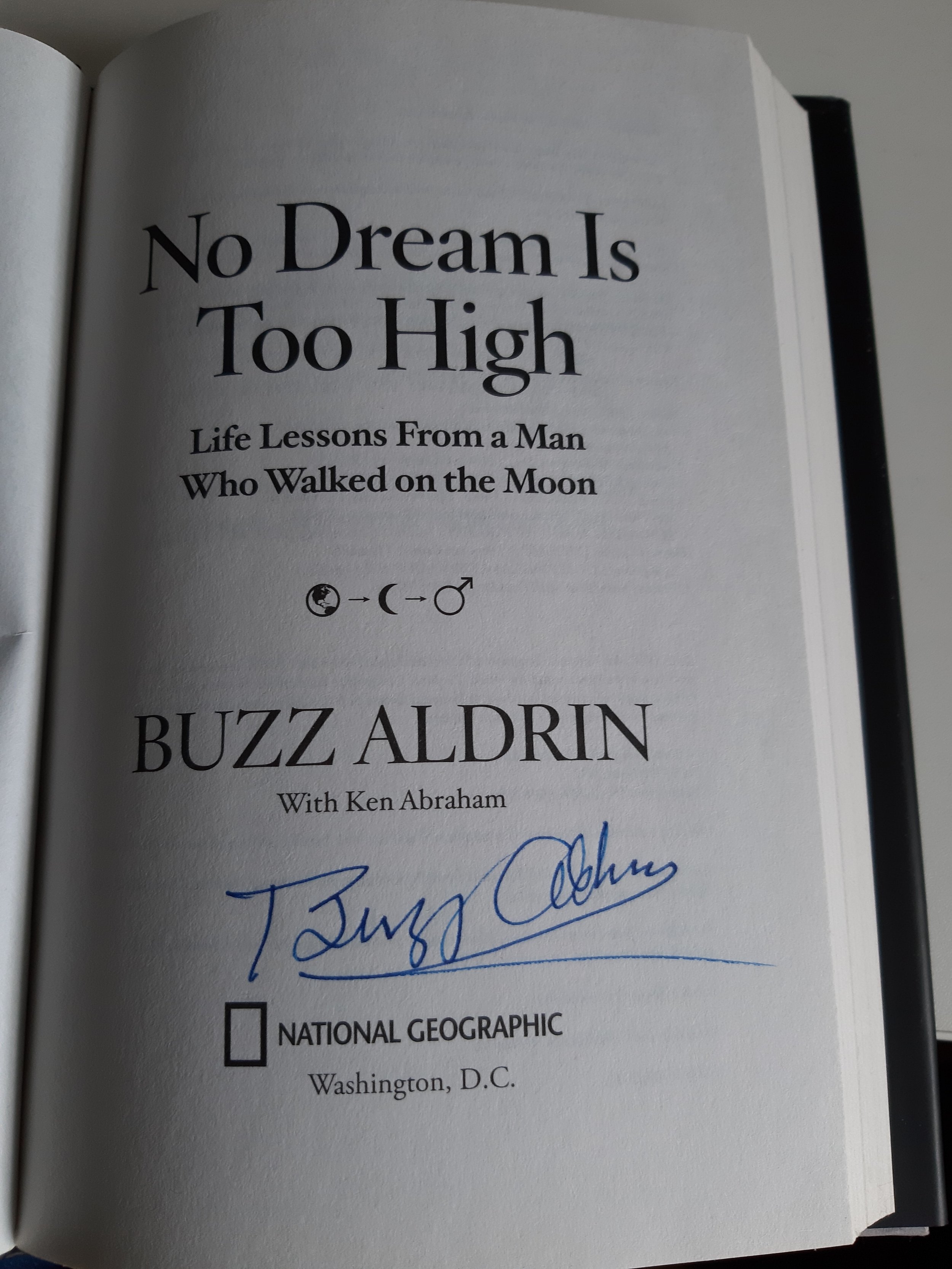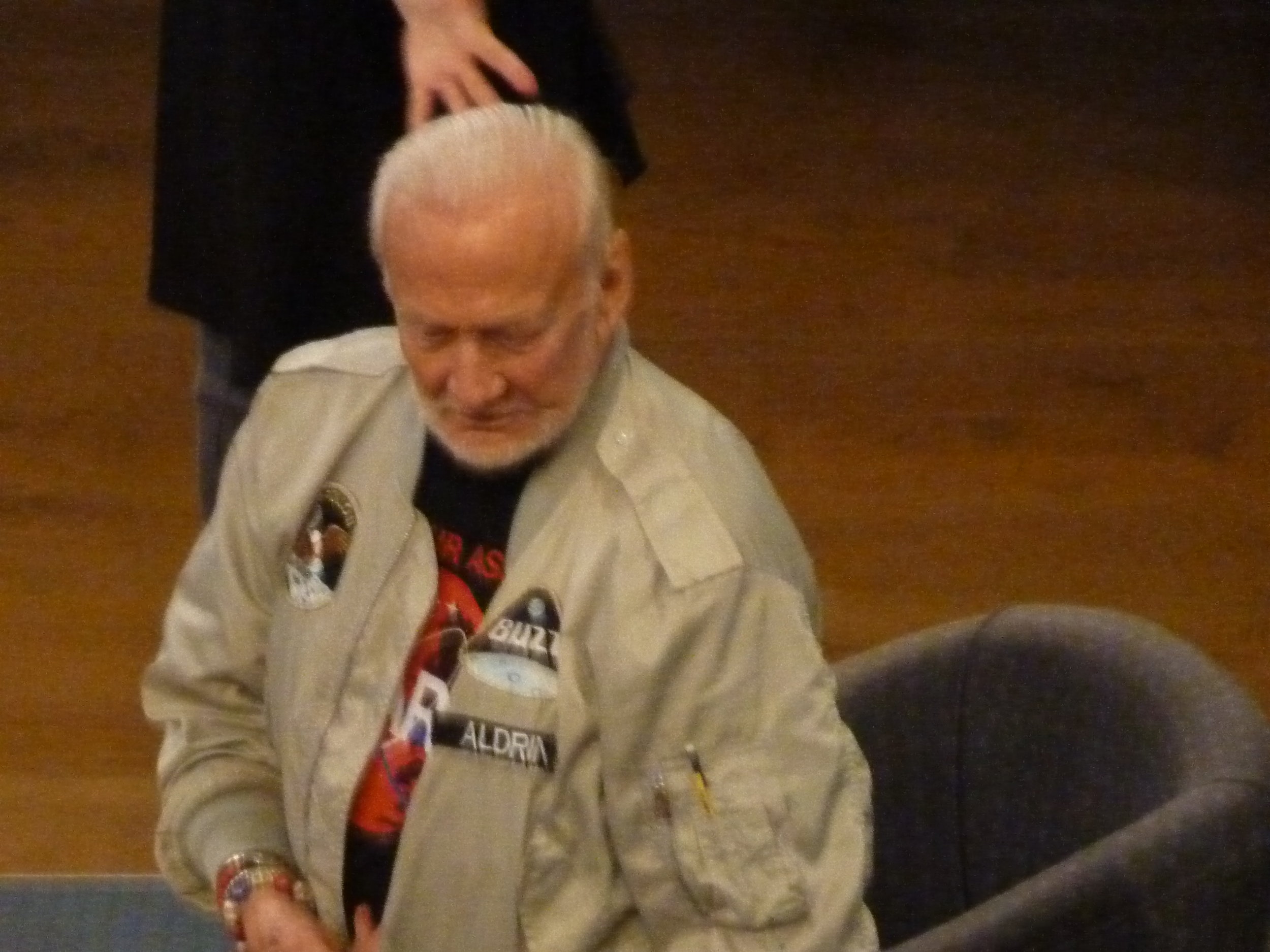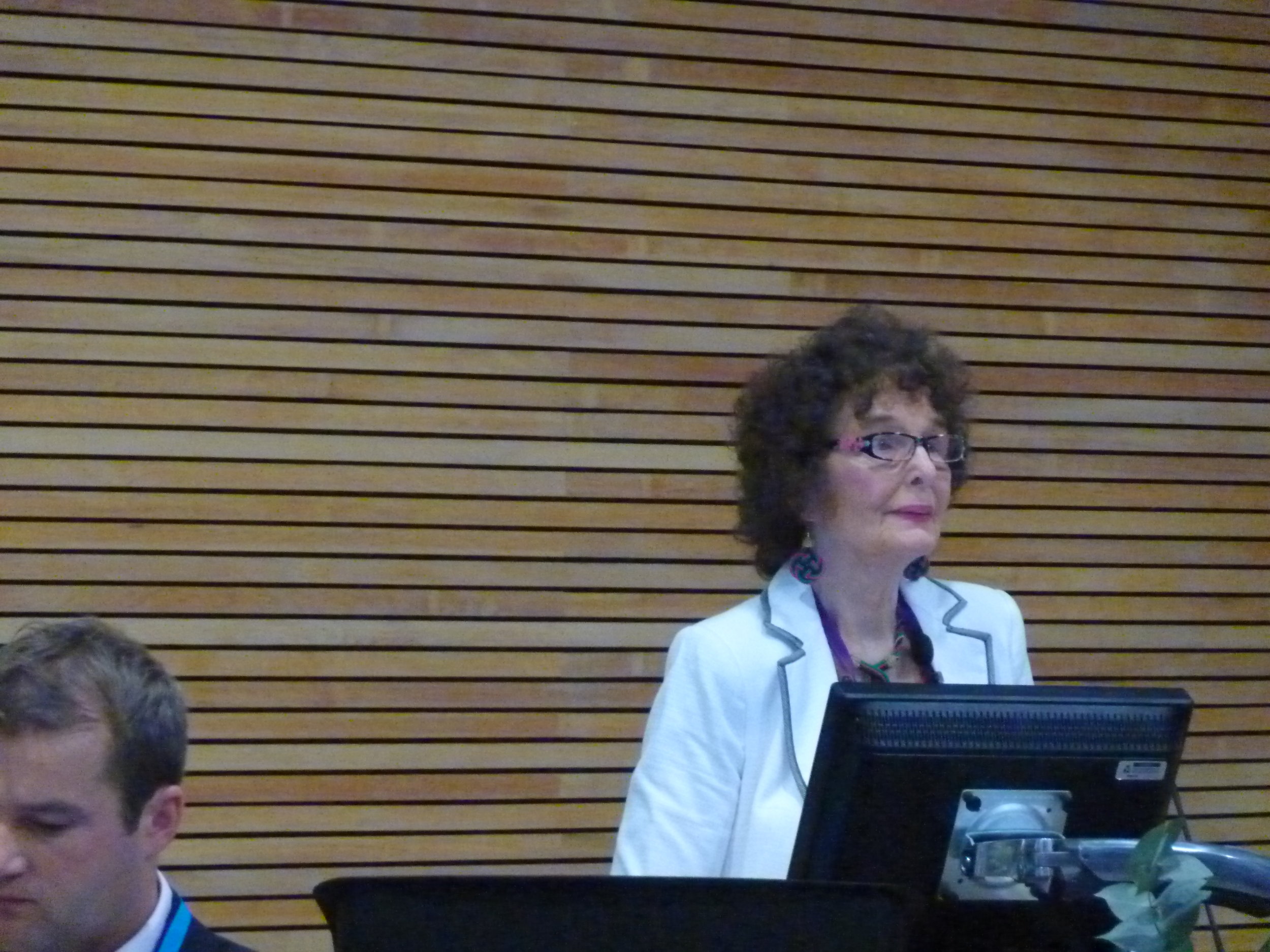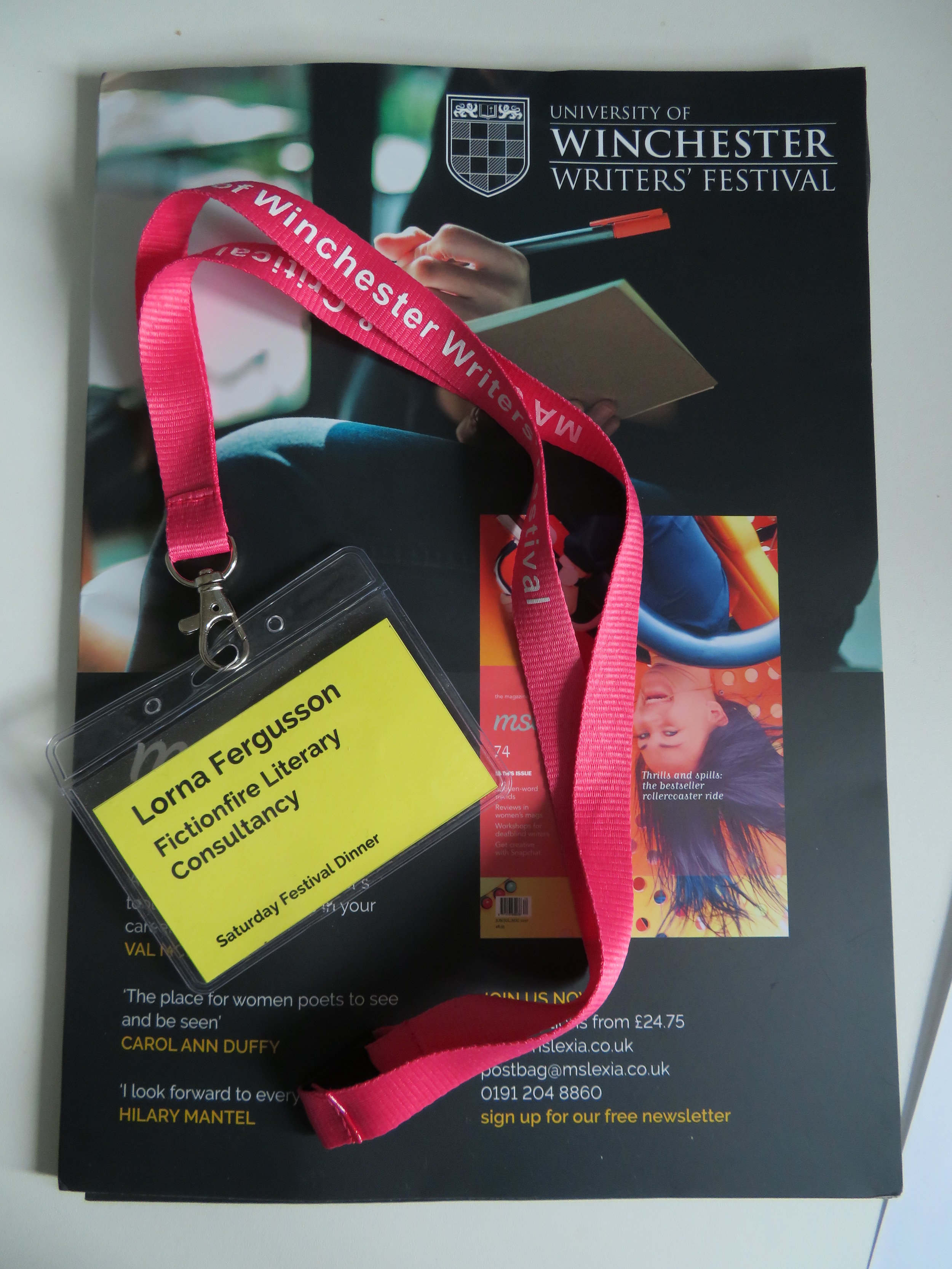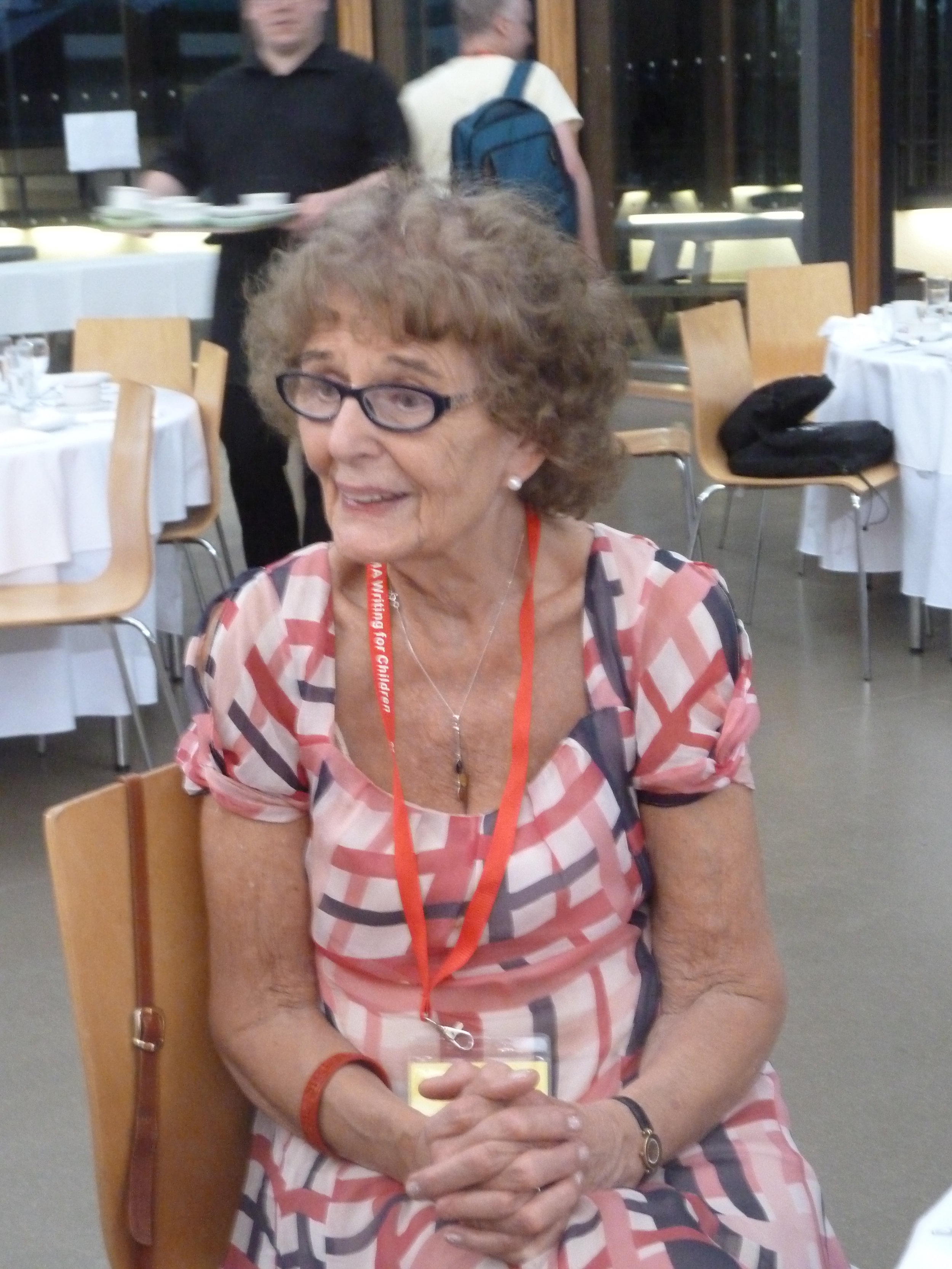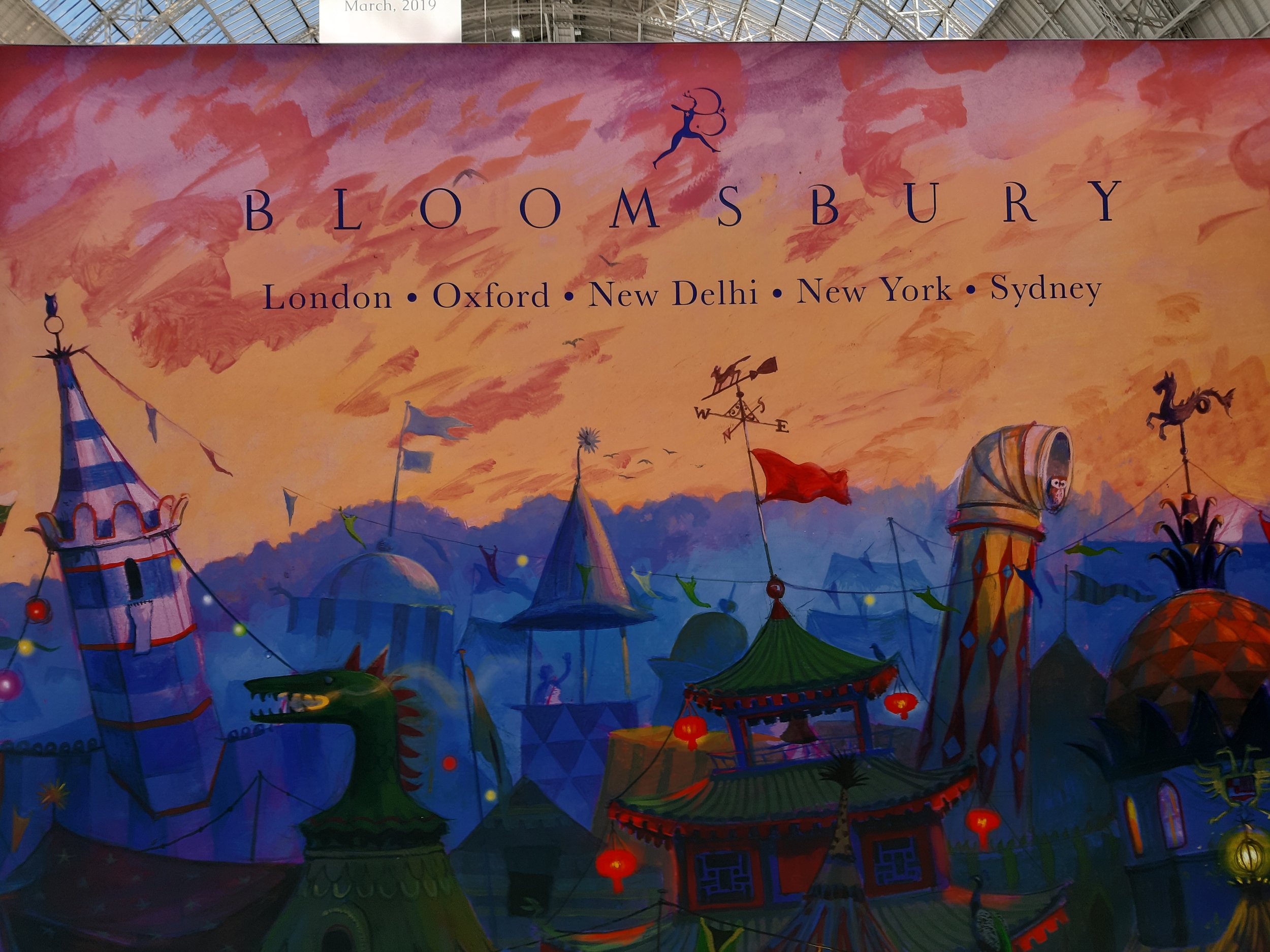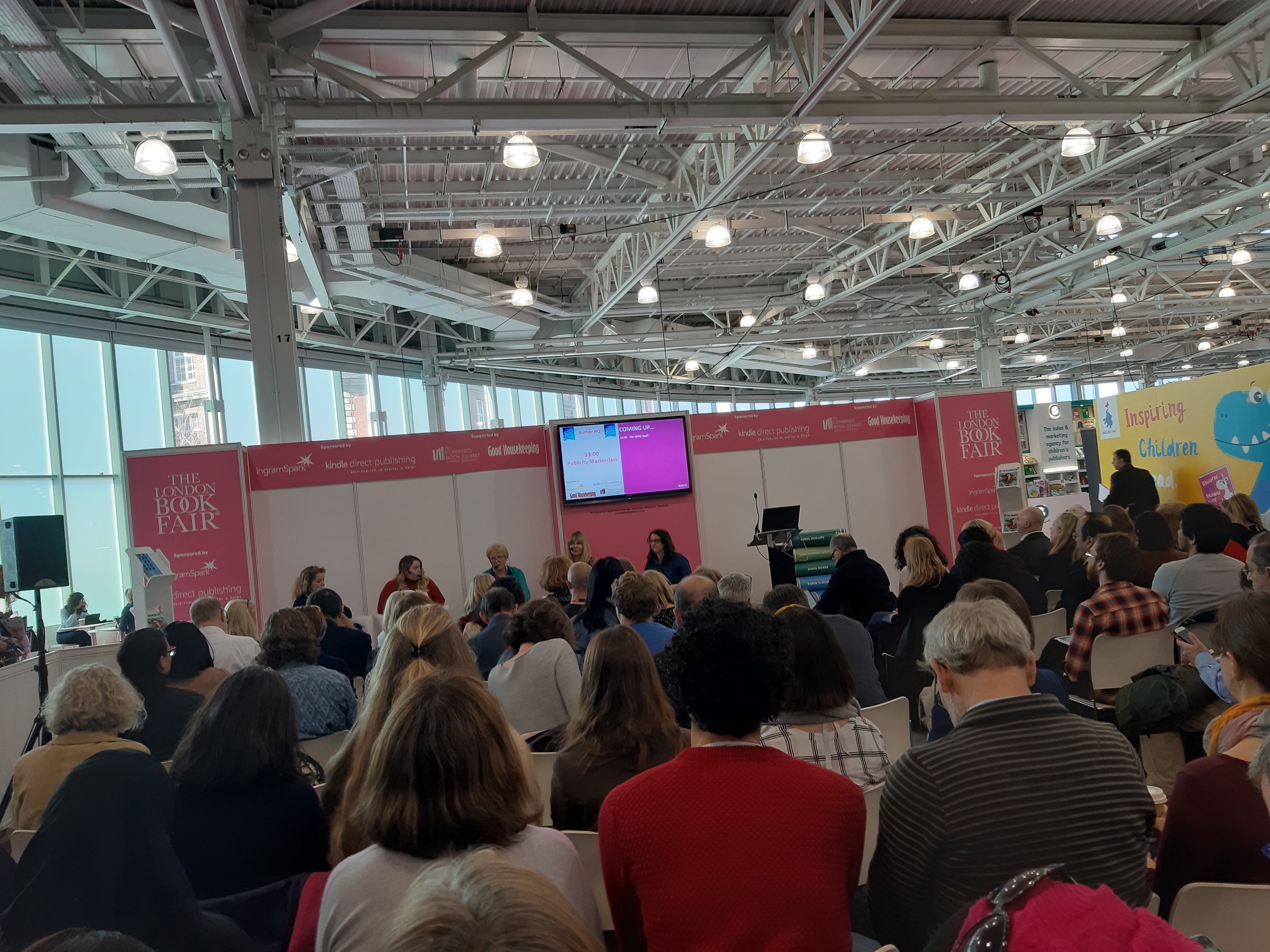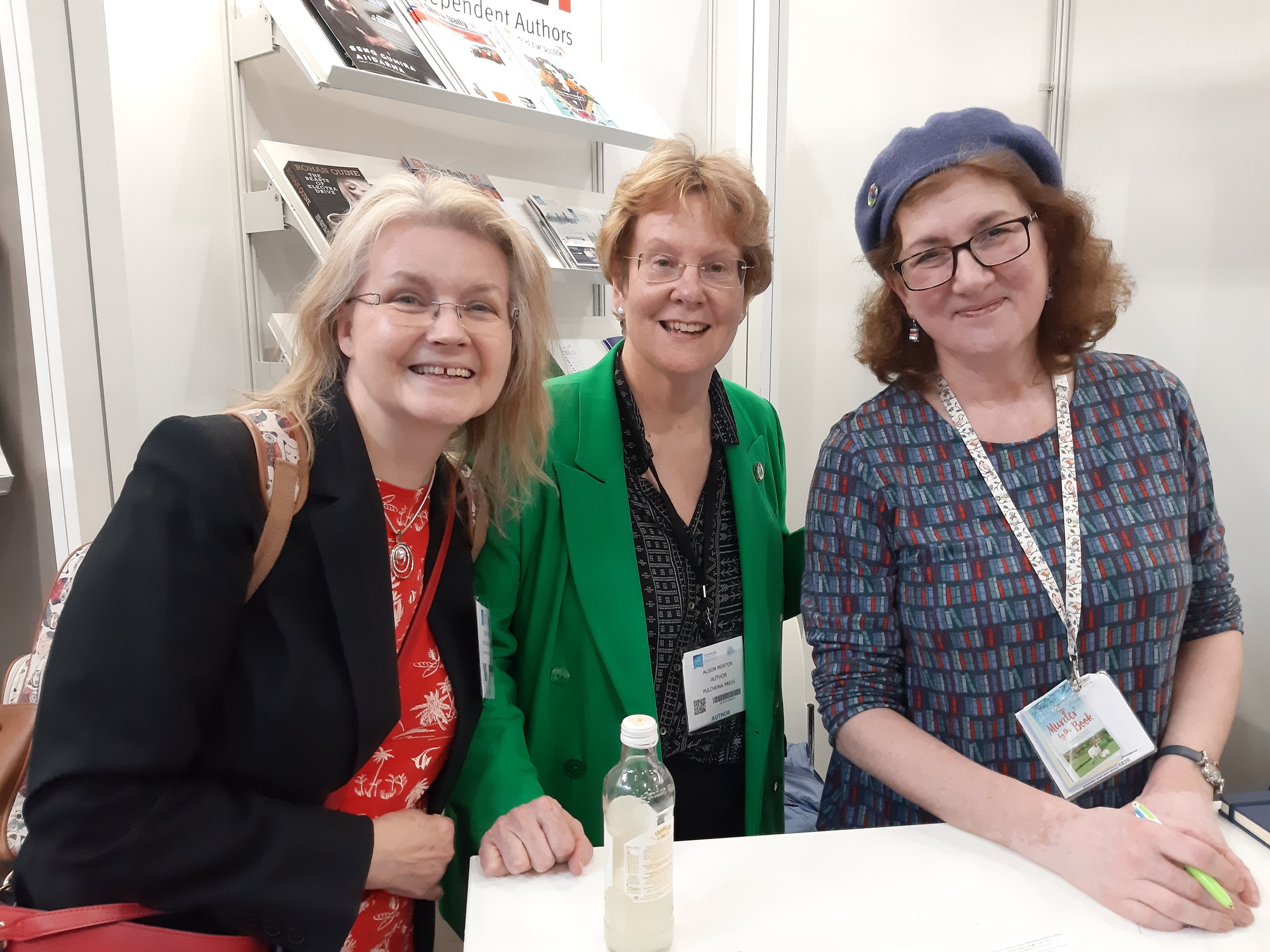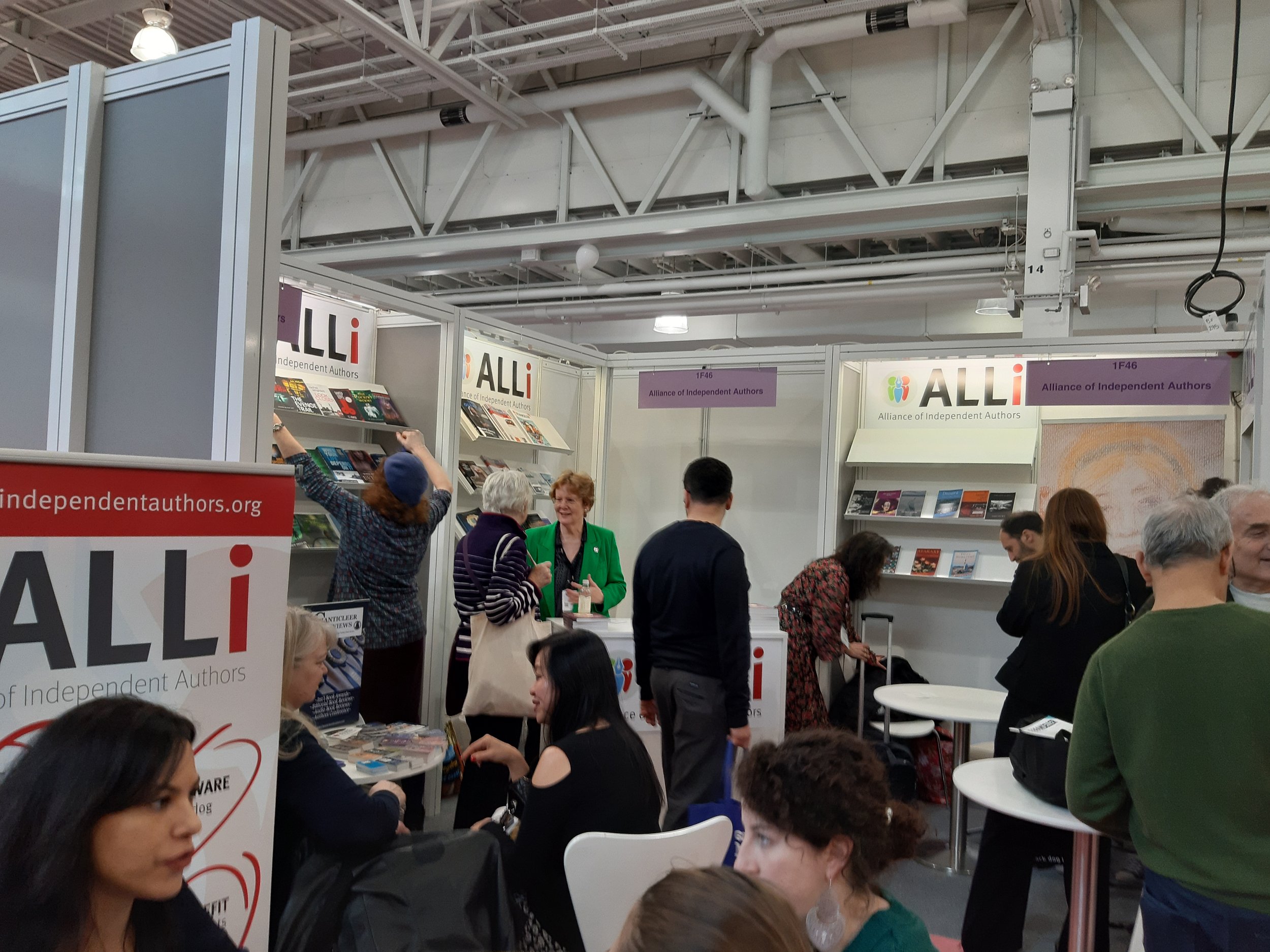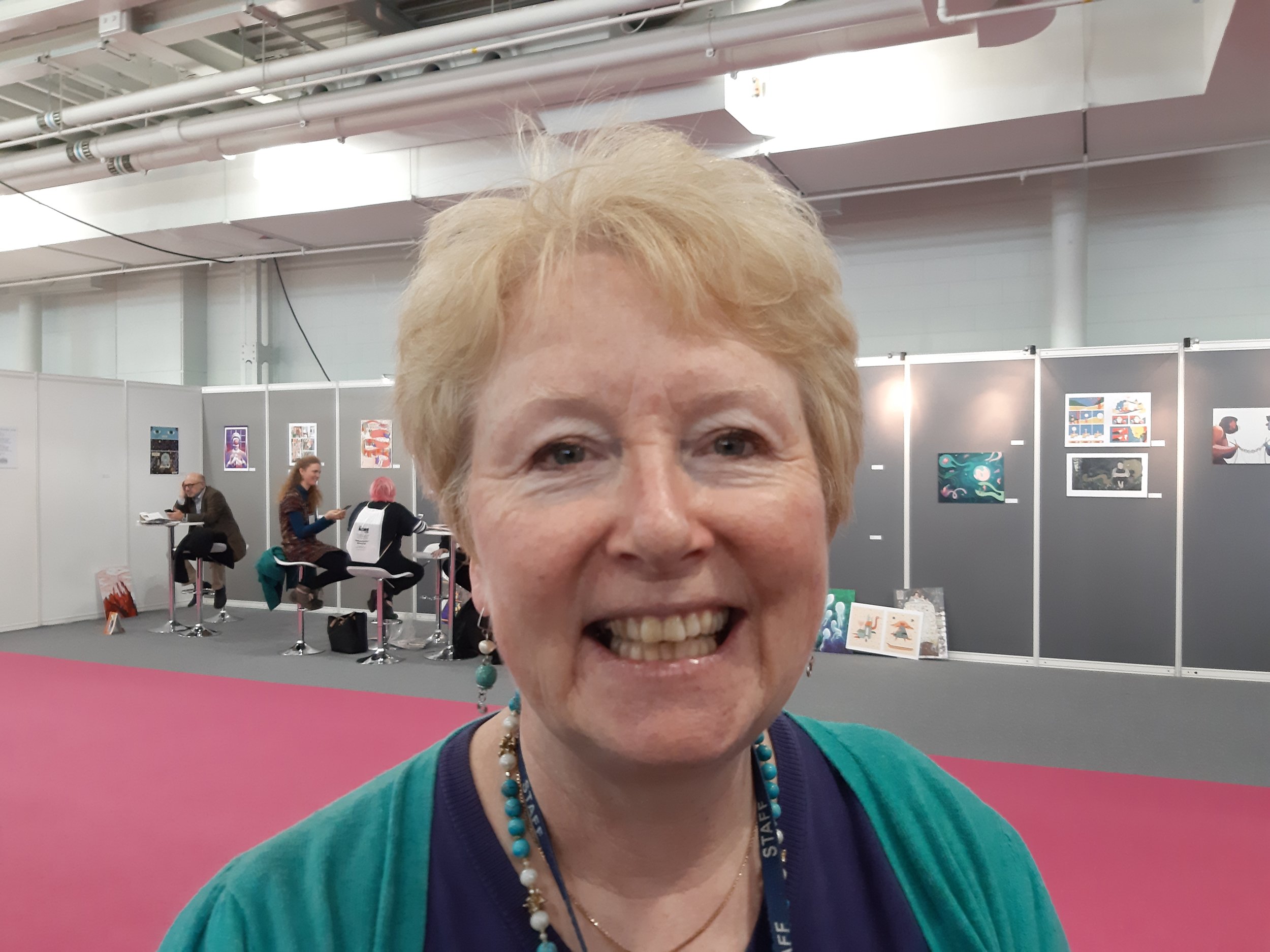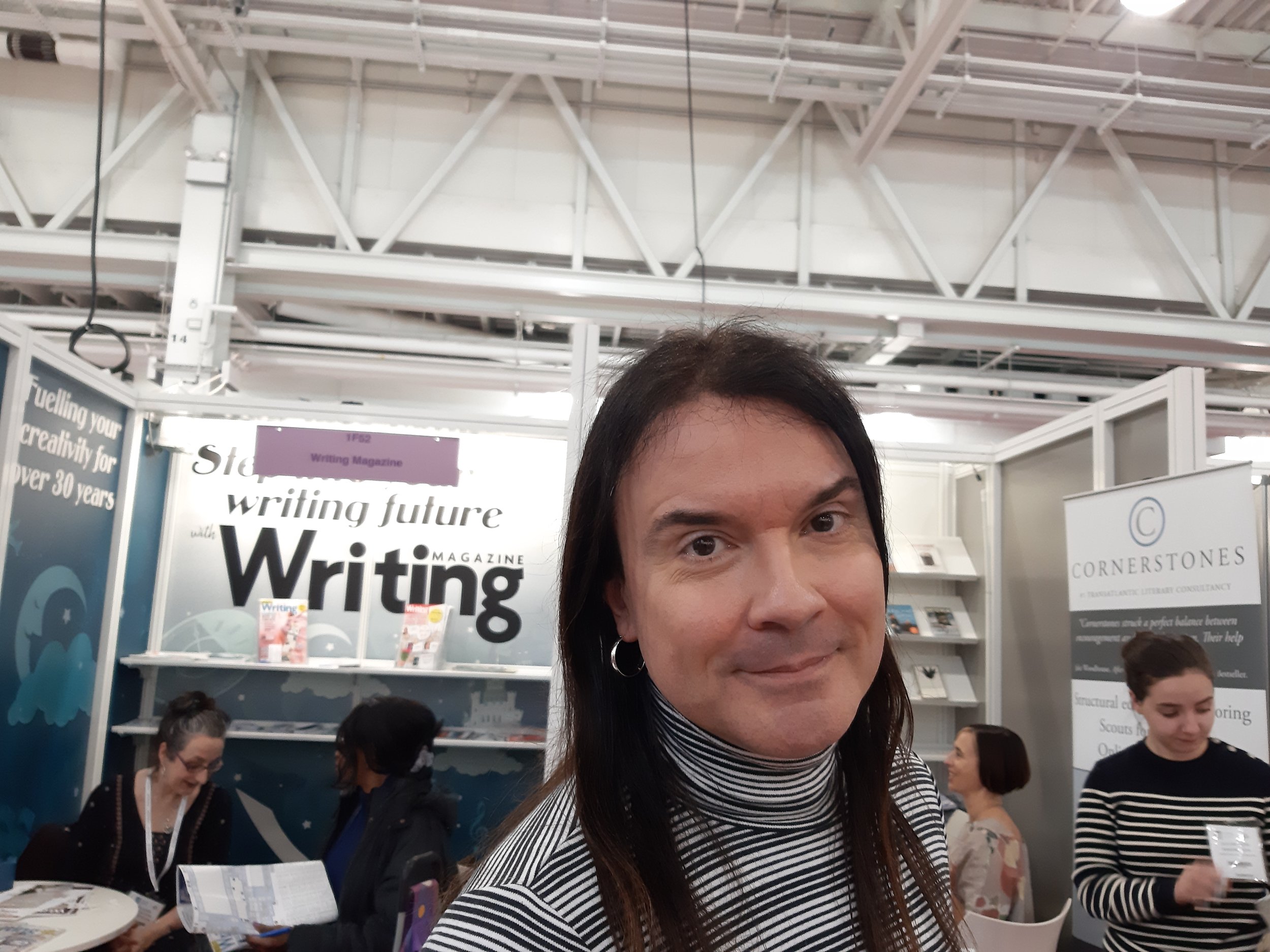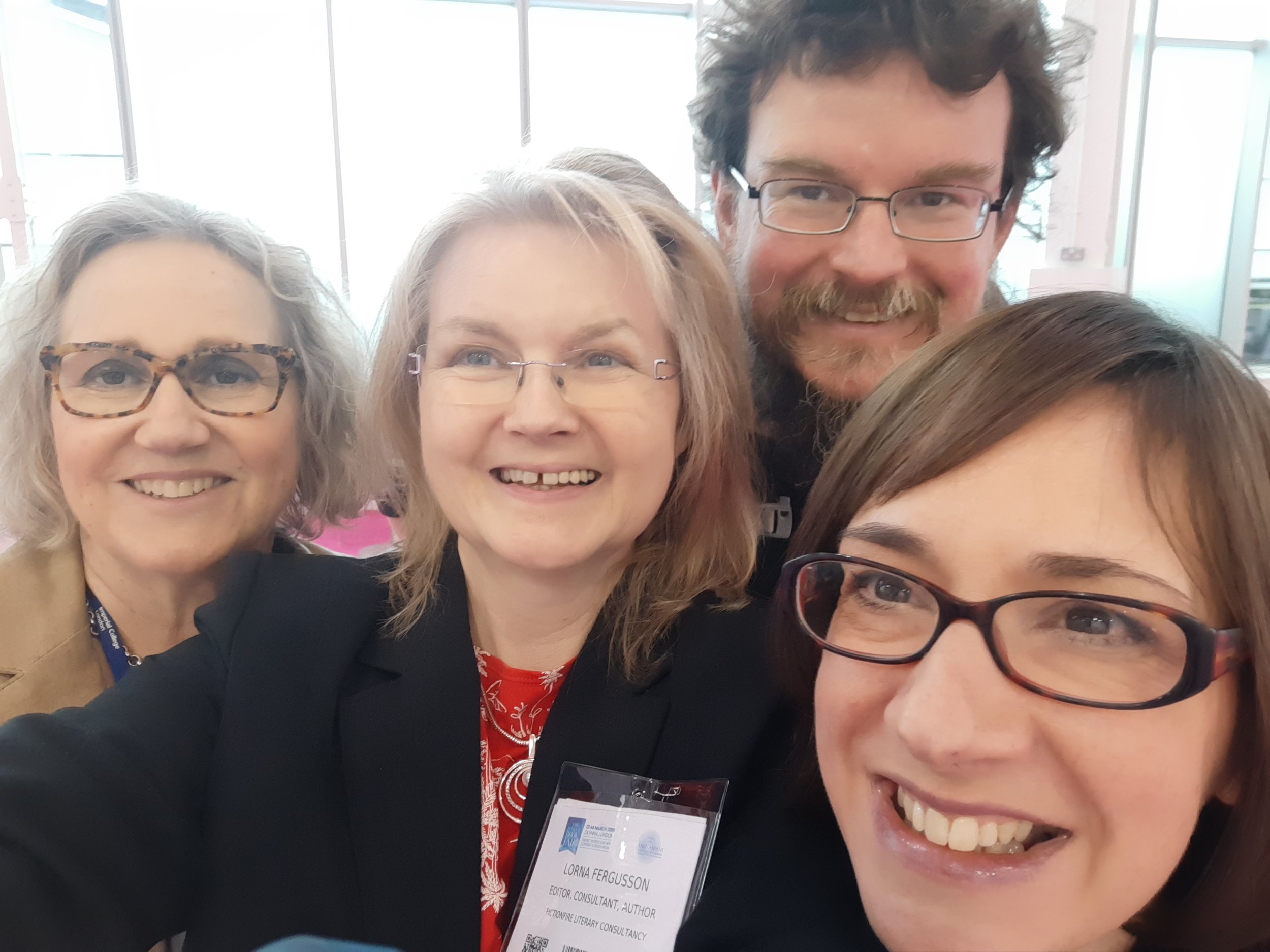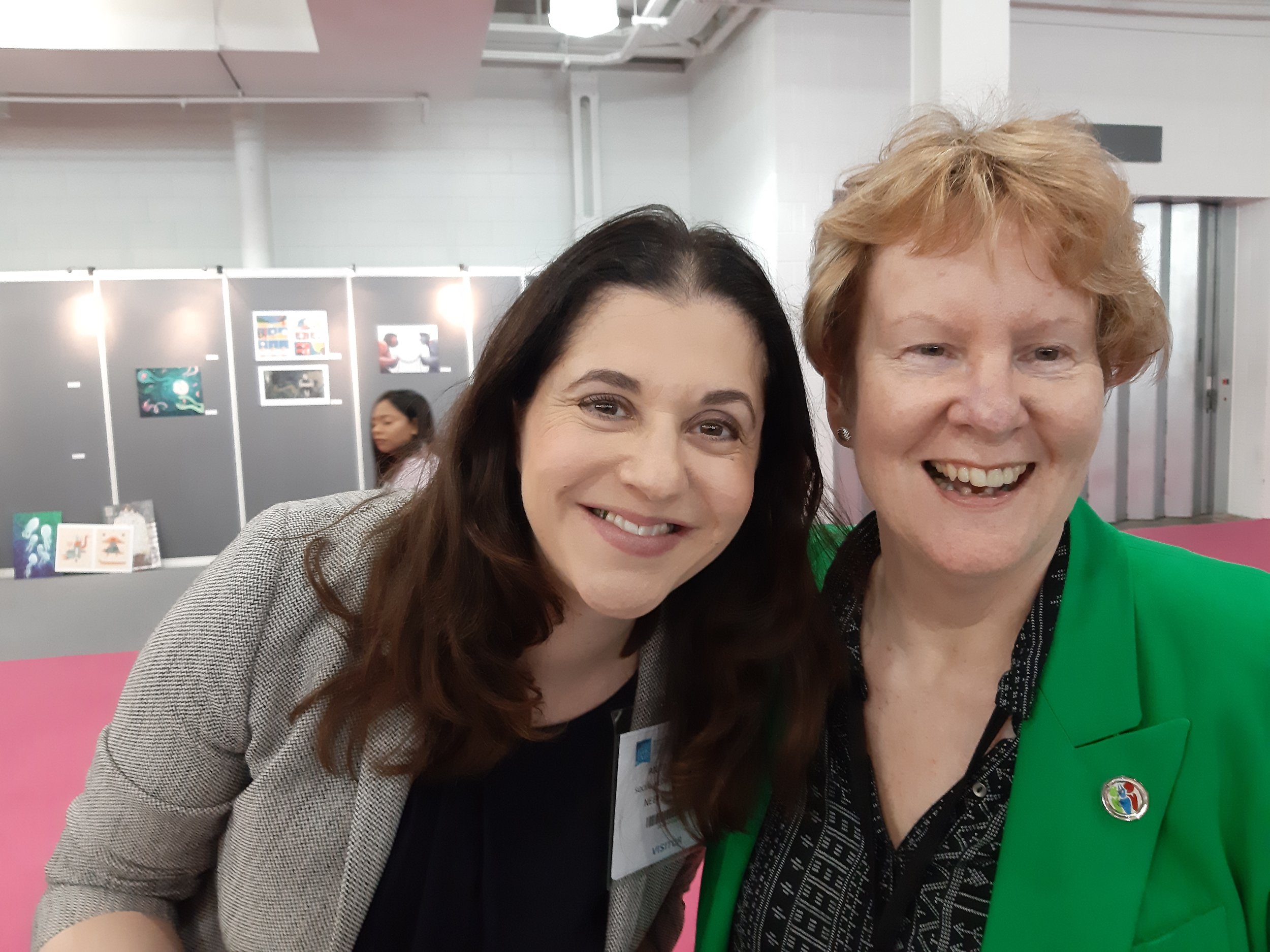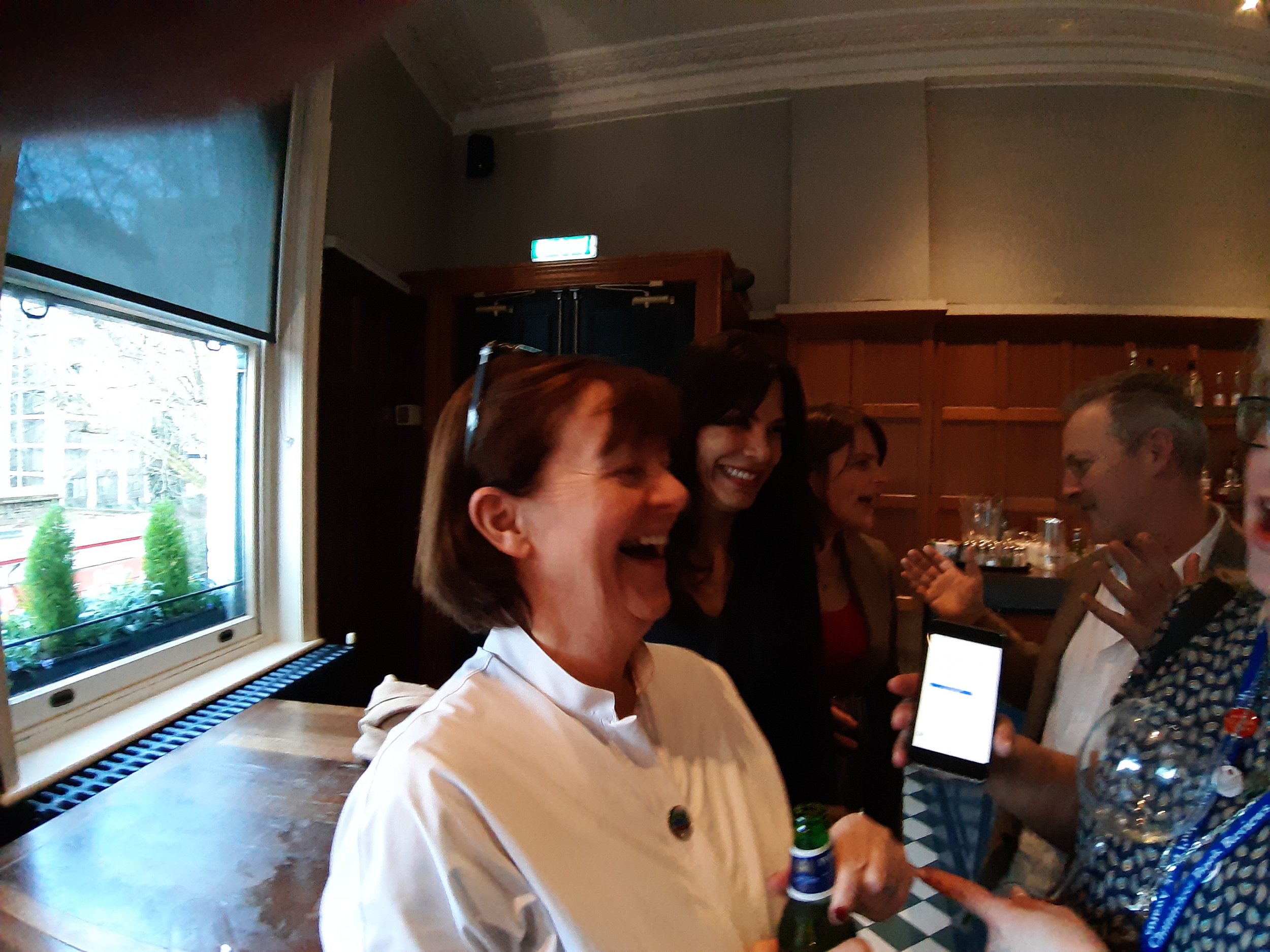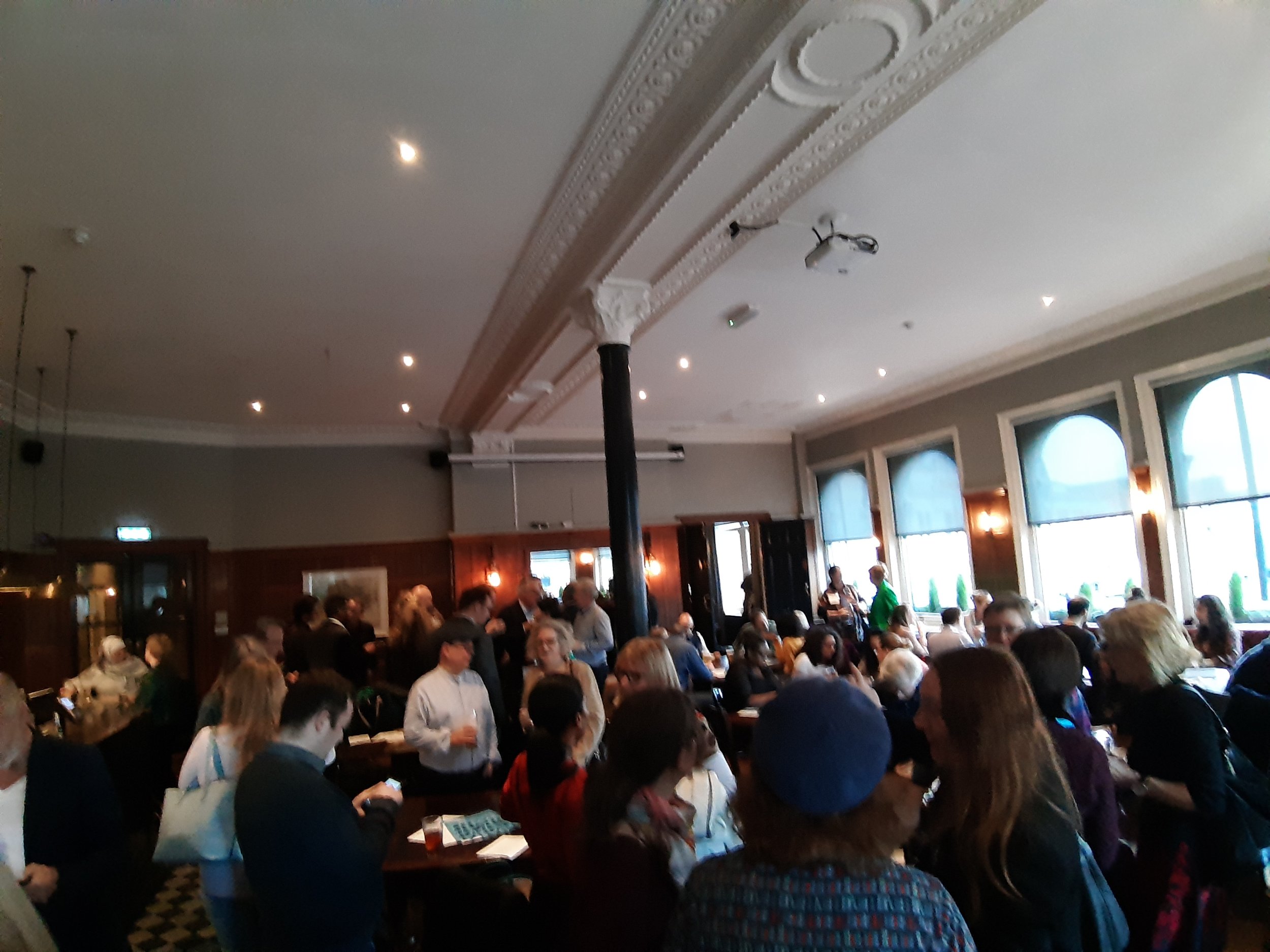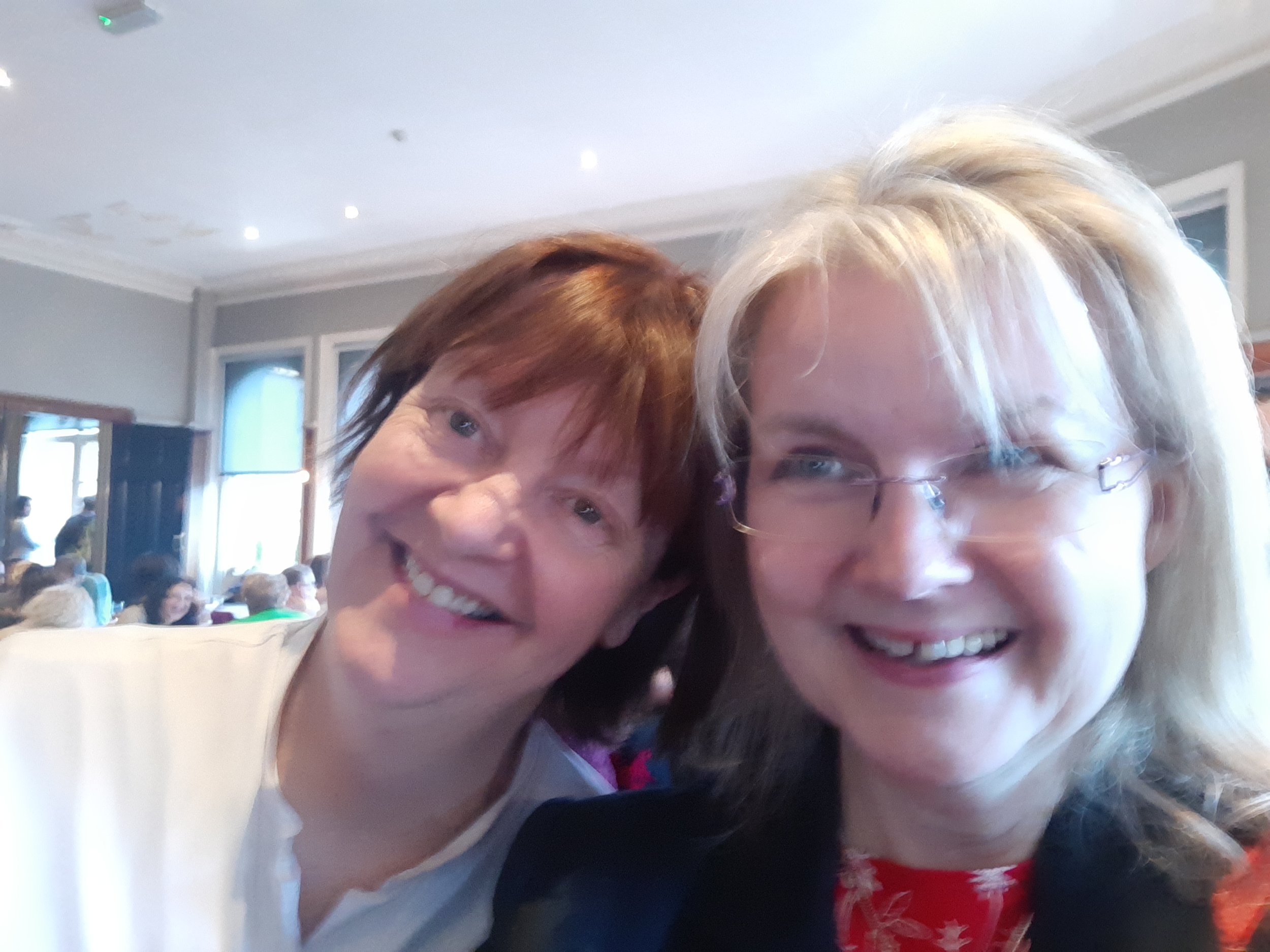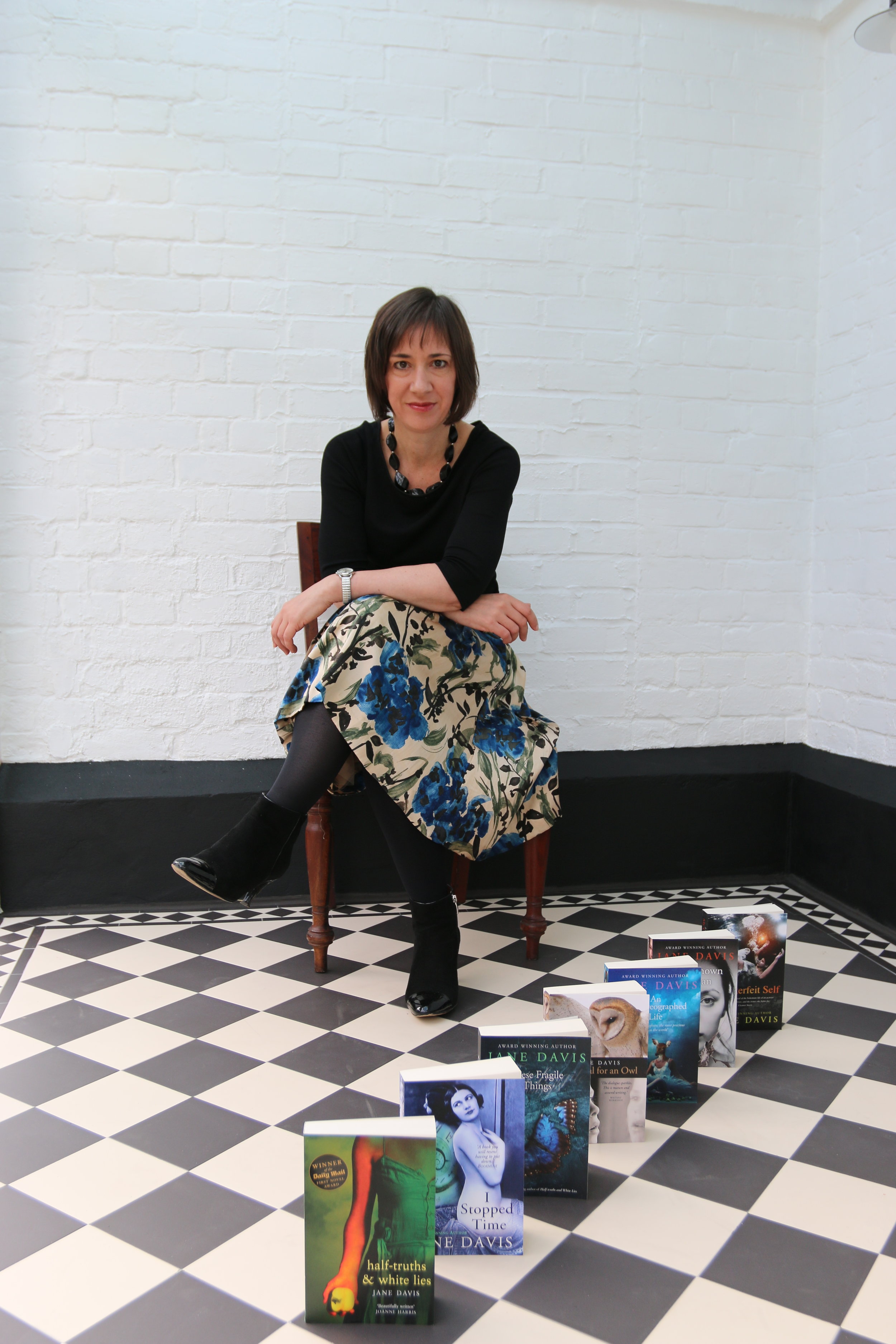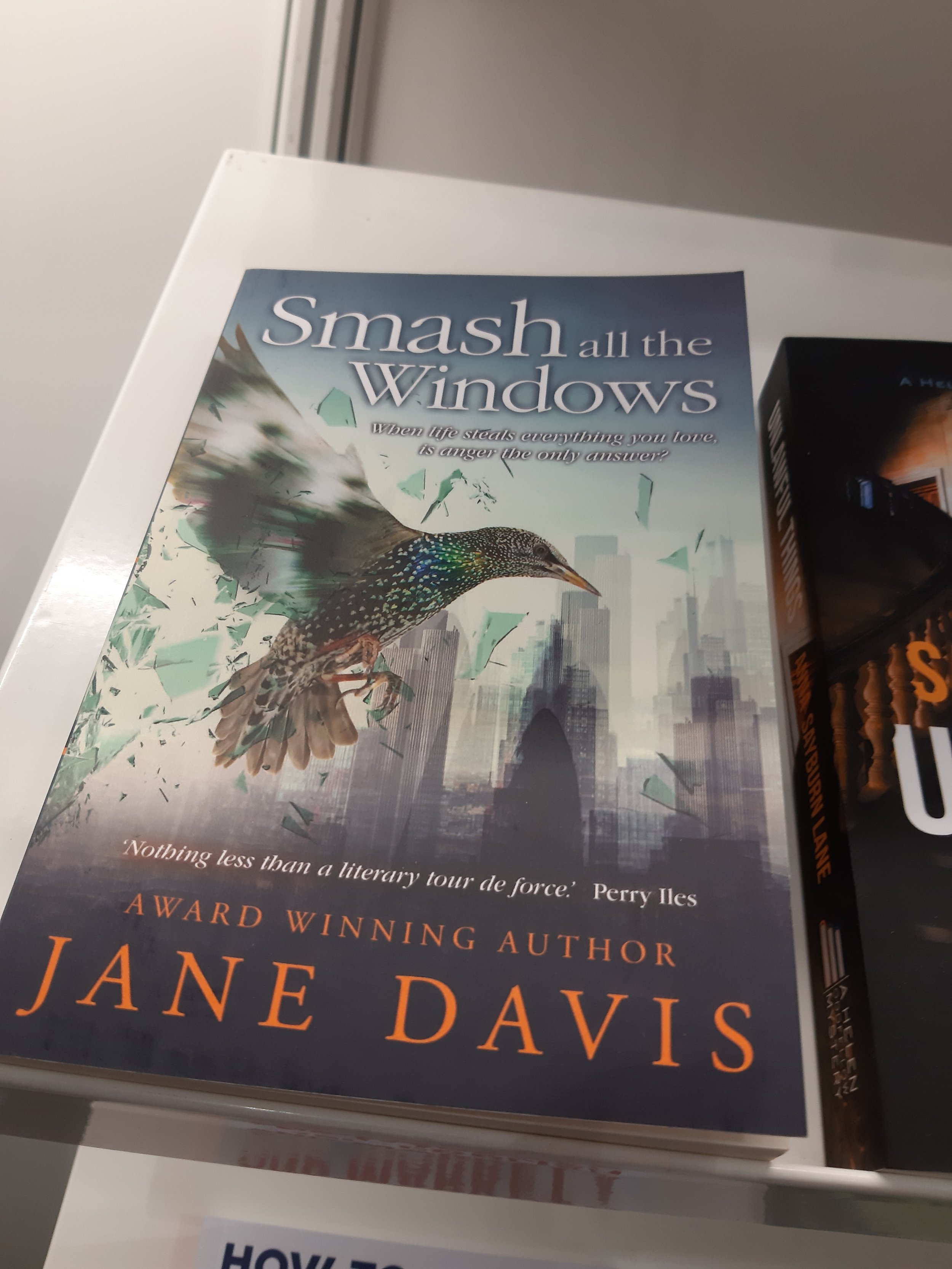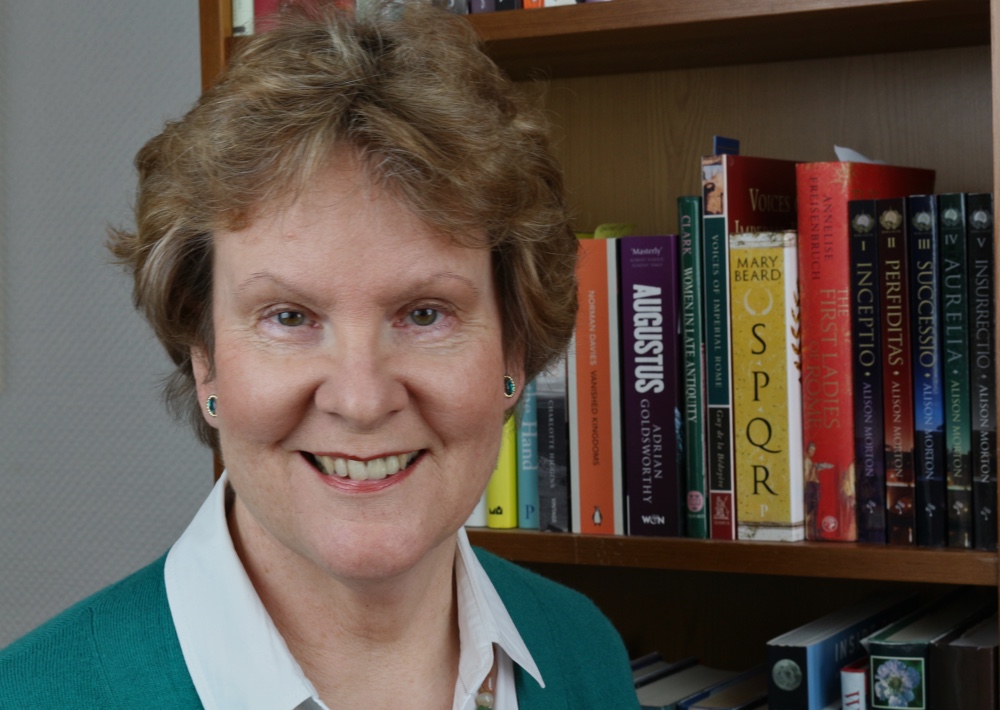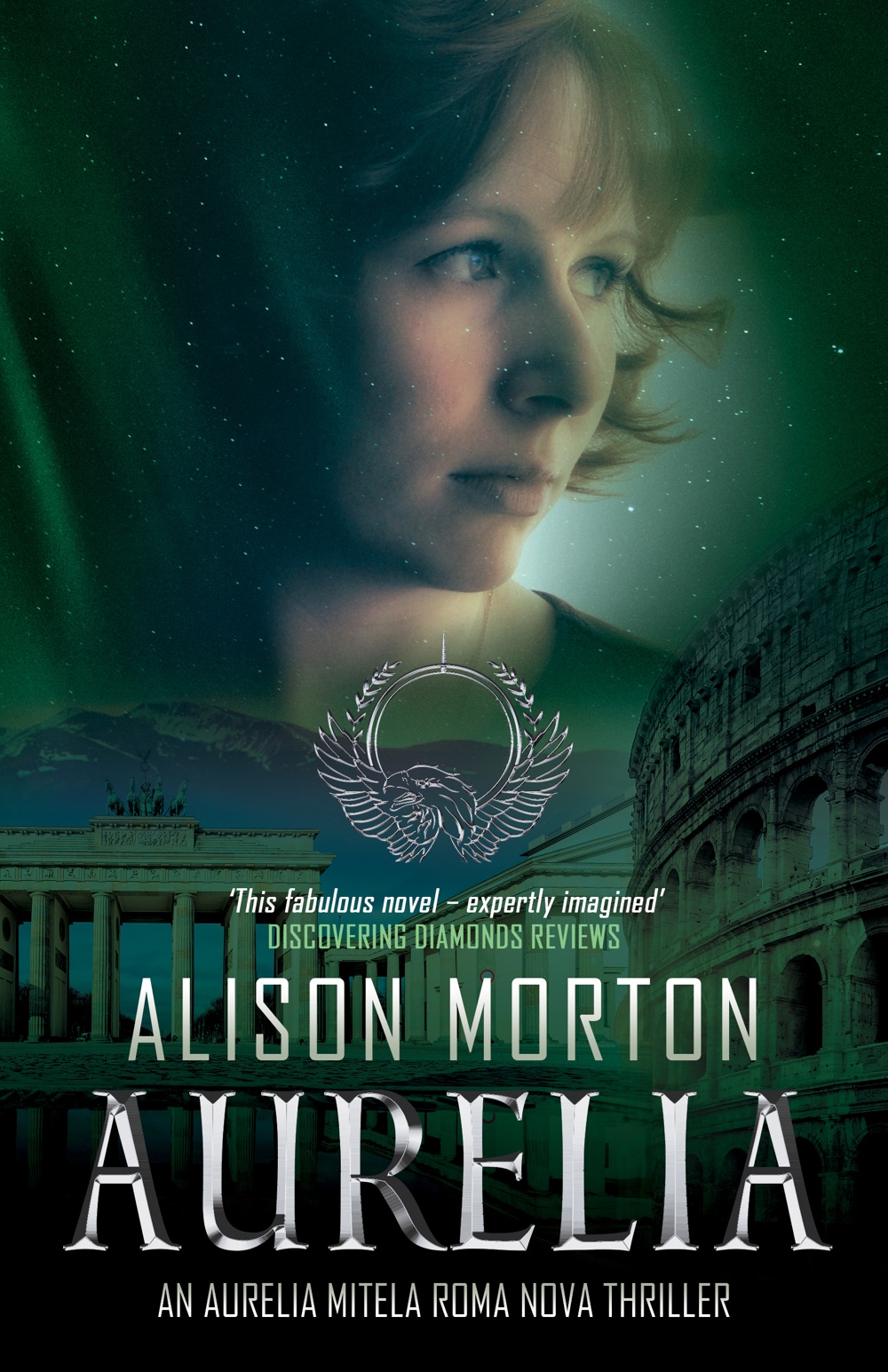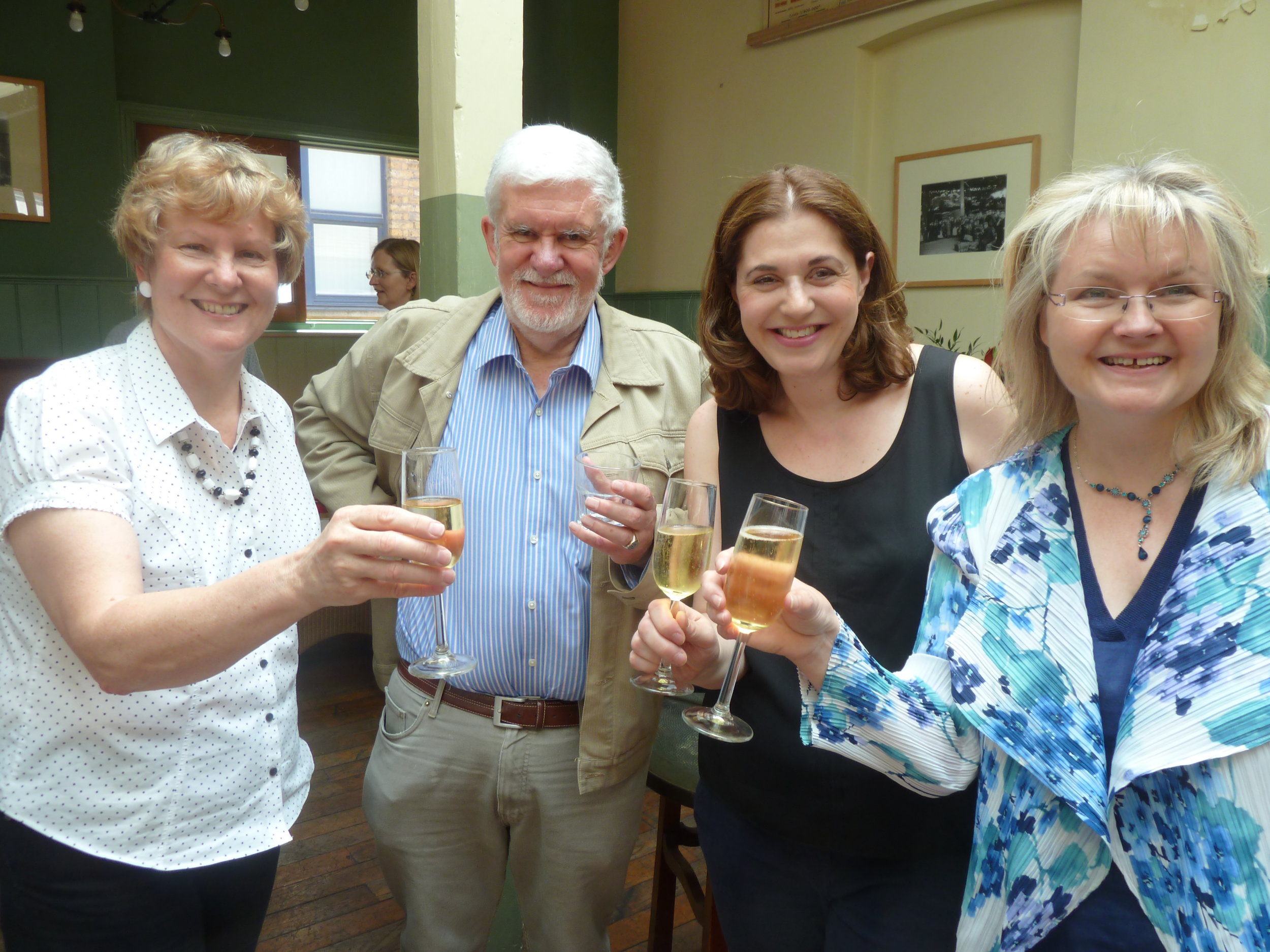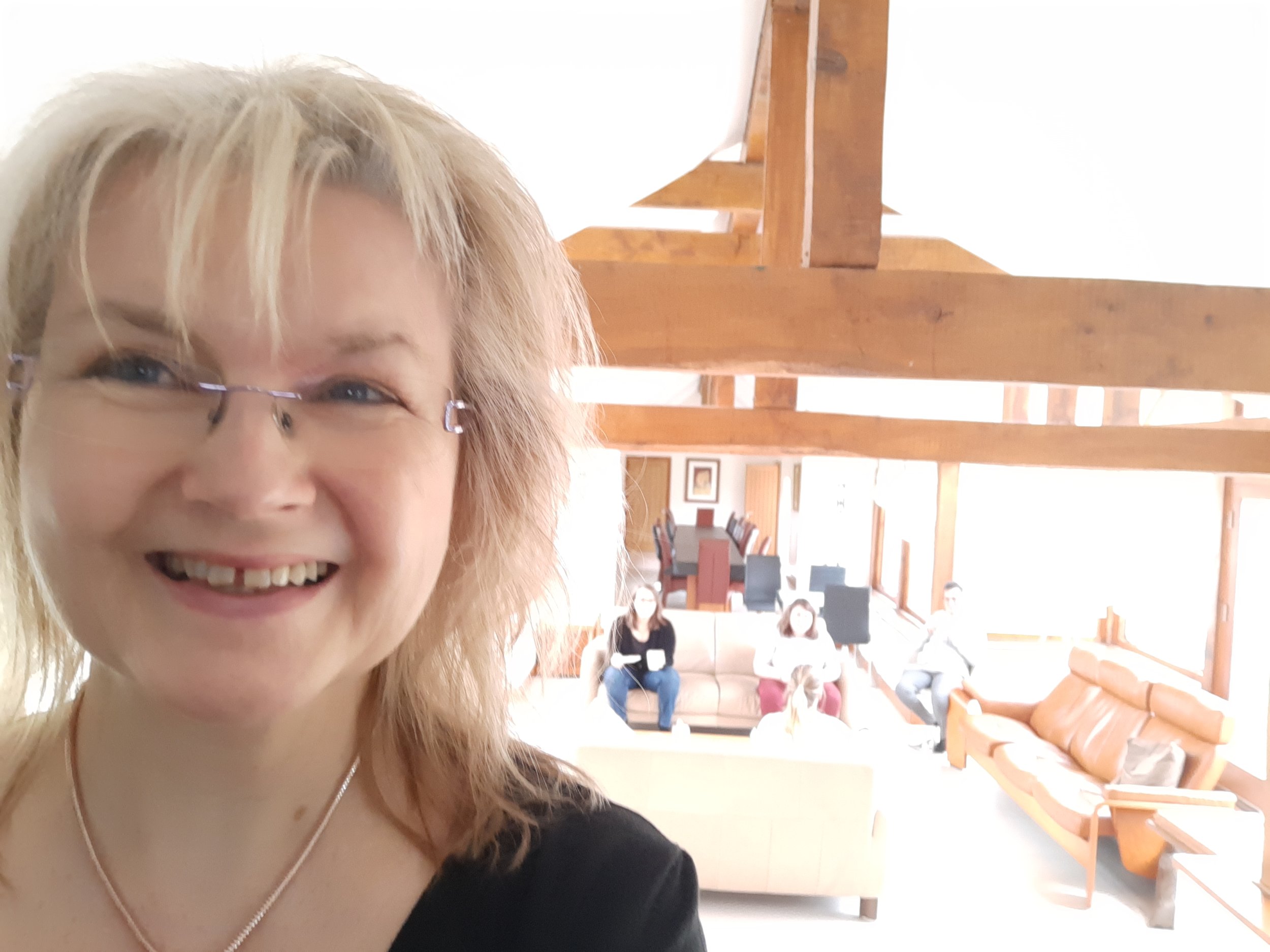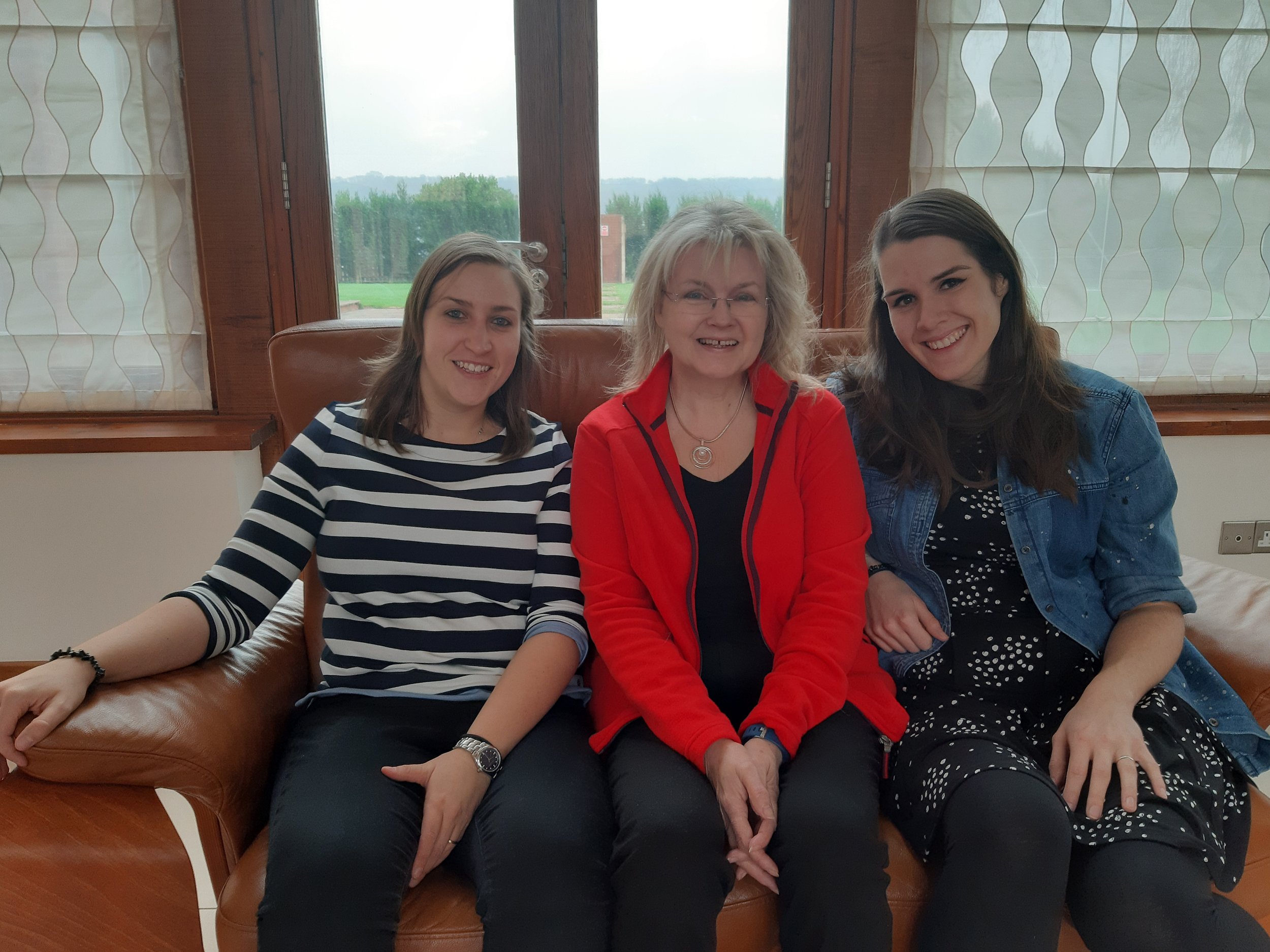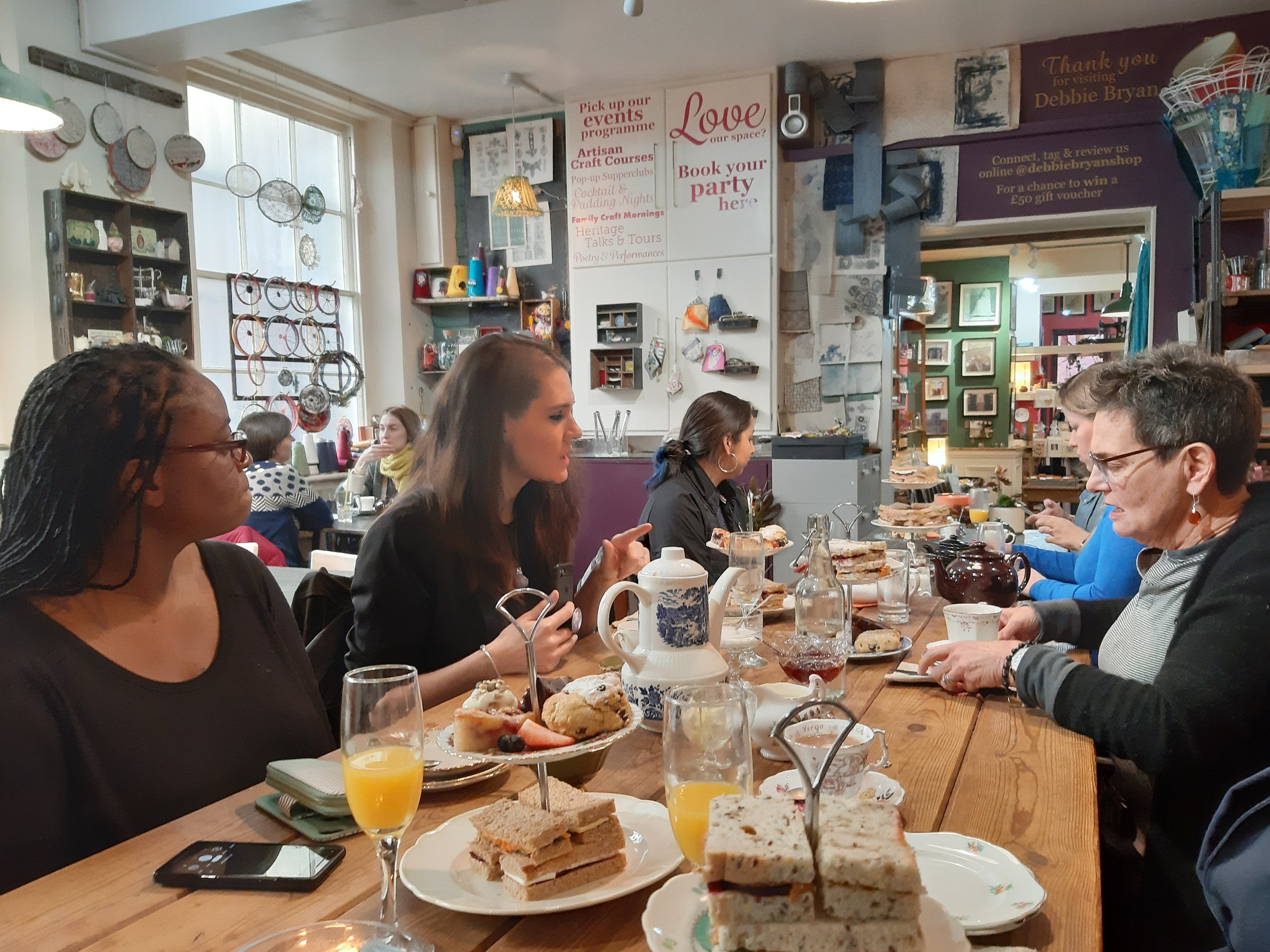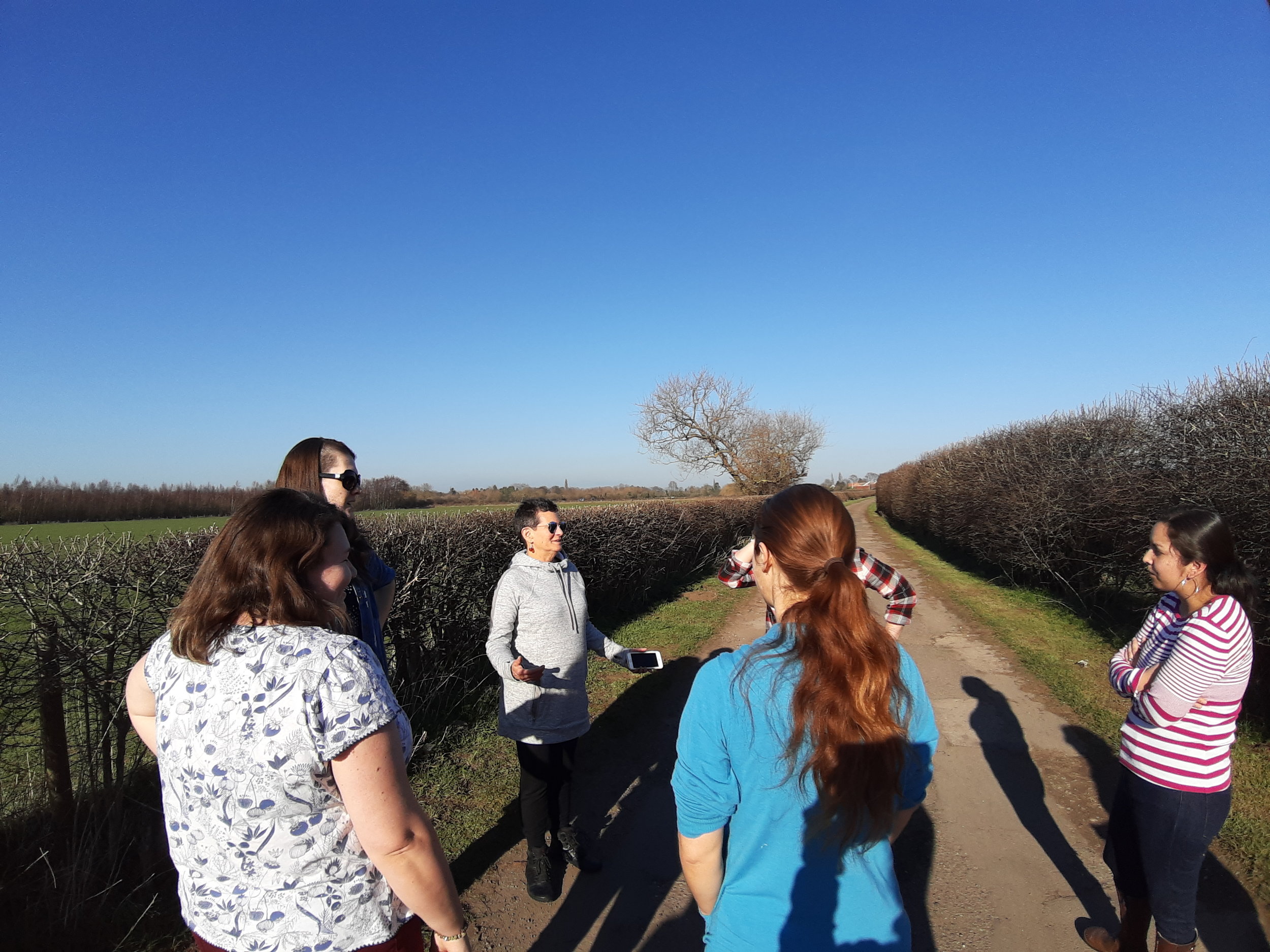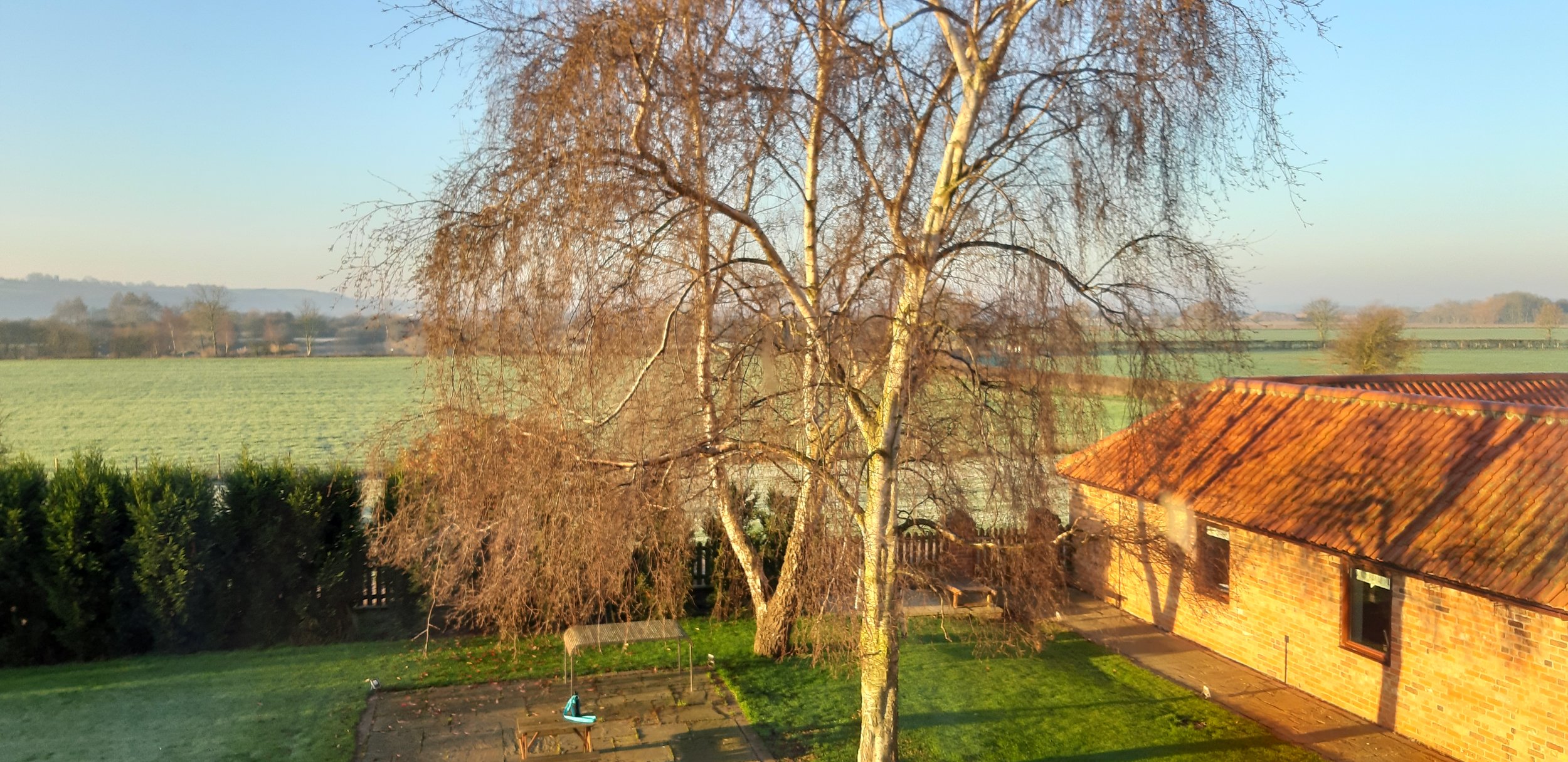Three years ago, I met one of the men who walked on the moon. Today marks the 50th anniversary of the Apollo 11 landing. Go out this evening and look up. The moon is a symbol of change: a few nights ago it glowed red as our planet cast its shadow on it during a lunar eclipse. It can glow pale silver, it can be dark grey. It can be a sphere, a semi-circle, a sliver – and it can disappear entirely. We cast it in the role of goddess of love and inspiration, haunter of our nightmares, presider over inspired madness. The moon visits us – but half a century ago, we visited it. Humankind, the lover of this mistress of our imaginations, came calling.
So, in honour of that, here’s the post I wrote about the time I met Buzz Aldrin (from my previous blog, Literascribe, in June 2016).
‘I’m sitting in the gallery of the Sheldonian Theatre, one of the most beautiful if not one of the most comfortable venues in Oxford. Looking down across the packed floor, I see a tanned face and a white beard through the glass of a side door. Moments later, in he comes, wearing a beige blouson jacket with embroidered badges on it. He waves like a king and air-punches like a prize-fighter as he makes his way through the applauding crowd.
He’s Buzz Aldrin.
His sassy, witty ‘Mission Director’ Christina Korb conducts the interview, trying to keep him on the straight and narrow, but she has trouble managing the blurted reminiscences and anecdotes. The man is bursting with things to tell us. He’s opinionated, forceful, waving be-ringed hands, talking about the Omega watch he wore on the outside of his spacesuit because it’s kinda hard to see the time otherwise.
I read Andrew Smith’s fascinating book Moondust: In Search of the Men Who Fell to Earth several years ago, struck by the poignant reason for its composition. At that time, only nine men were still alive who had walked on the surface of the moon, so he set about interviewing them while he could.
Well, there’s fewer than nine now. That is why several hundred people have queued in the chill rain outside and will later queue for the best part of an hour to get their books signed. I’m one of them. For a moment, we’re in contact with history, with what now seems a lost idealistic era. I grew up with the sense that space held all potential. I’d read Edgar Rice Burroughs’ Martian and Venusian series. I’d read Isaac Asimov and Arthur C. Clarke and Ray Bradbury. The stars, the planets and the dear old moon itself held out dreams of adventure and fulfilment.
So tonight we lap up the bombast and the showboating, enjoy the clearly oft-repeated wisecracks, the whole display of it all, because although this man is 86 now he is more alive than most we’ll ever meet and this man walked on the moon! He wears a t-shirt saying ‘Get your ass to Mars’ and is passionate about sending humans there, saying that a human can do in a week what took Spirit and Rover five years. He describes his spacewalk, saying he ‘wanted to putt putt putt around like George Clooney in Gravity.’ He says yes, the Russians put Sputnik up there but ‘if you put up a dumb satellite you don’t give it a parade and everybody loves a parade!’ What’s more, they put a dog in orbit and left it there – ‘at least we brought our monkey back.’ He expresses regret at the loss of Neil Armstrong. He talks of his family and his sense of destiny: his mother was Marion Moon and his father knew the Wright brothers. Yup, it was all meant.
When I eventually reach the head of the queue and he signs my copy of No Dream is Too High, I burble something about looking up at the moon from a Scottish garden when I was a little girl, amazed to think he was up there. ‘My mother came from Edinboro…’ he smiles and I pass on, past the selfie-taking crowd. Outside the Sheldonian I wish the clouds would part and I could see the old man’s stamping ground.
I remember another night, years ago, when I looked at the moon and it gave me an idea for a story of ‘something strange, spectacular and out of this world.’ This idea grew into a children’s book, Hinterland, which made it to the shortlist of a significant prize for unpublished novels. I remember the magic of writing that story, of describing grey dust and a terraced crater like an amphitheatre and ‘hanging like a jewel against the dense black void, with fat blue oceans and swirling white clouds’, our planet. And I think to myself, I need to rediscover what that story meant to me and maybe, just maybe, roll it out onto the launchpad once more and send it into the ether myself.
So thank you, Buzz.’
Three years on, after a week of TV programmes celebrating the moon landing mission, what are my thoughts on re-reading this post? The moon missions and the space programmes still speak to us of heroism, imagination, persistence, resilience, and all the power of human aspiration. We are in awe of the courage of the astronauts. We are in awe at the sight of the mighty and beautiful Saturn V thundering into the sky, fuel roaring and crackling as it burns its way into the heavens. This is wonderful. Fifty years on, it is still heart-stoppingly wonderful.
Yet we live on a riven planet, despairing as prejudice and the meaner aspects of human nature hold sway. Our planet is in more danger than ever before – and that is down to us. No stray asteroid or conquering alien race threatens us: we threaten ourselves.
Buzz and his like remind us that even in imperfection, in in-fighting and rivalry, in near-misses and tragic accidents, in times when it doesn’t seem worthwhile to believe in any ideal at all, that vision and a sense of human destiny still matter.
Keep going out there and looking up. Keep dreaming. Keep asking for the moon. And the stars. And everything we as humans are capable of. Keep trusting we can be the best we can be. (And by the way, that doesn’t mean going back to the moon simply to wrest the mineral riches out of it. I would rather we never went back than that we went back as raiders and exploiters. We have done enough of that on our own sublunary globe.)
As for Hinterland? Still waiting on the launchpad – but that doesn’t mean it won’t blast off sometime! In the meantime, the next book on my personal launchpad is The Unputdownable Writer’s Mindset. Because writers dream and take their own kind of risks; they need to believe those risks are worth taking. Even if they’re not flying to the moon.
Visit www.theunputdownablewriter.com to sign up for advance news and sneak peeks ahead of publication.

